Hard-water stains can be a real nuisance. They mar the beauty of your shower surfaces, leaving unsightly spots and streaks.
These stubborn stains are a common issue in many homes. They occur due to the high mineral content in hard water, which leaves deposits on surfaces over time.
But worry not. This article is here to help you tackle this problem head-on.
We'll guide you through effective methods to remove hard-water stains from any shower surface. Whether it's multi-head shower systems, standard shower systems, or rain shower systems, we've got you covered.
You'll learn about DIY solutions, commercial cleaners, and preventive measures. By the end, you'll be well-equipped to restore the shine to your shower surfaces.
So, let's dive in and start the journey towards a cleaner, stain-free shower.
Understanding Hard-Water Stains
Hard-water stains, also known as limescale, are mineral deposits. They form when hard water - water high in minerals like calcium and magnesium - evaporates, leaving the minerals behind.
These stains are not just unsightly. They can also affect the hygiene of your shower surfaces. Over time, they can become breeding grounds for bacteria.
Moreover, hard-water stains can be tough to remove. The minerals bond tightly with the surface, making them resistant to regular cleaning methods.
But with the right approach and a bit of elbow grease, you can effectively remove these stubborn stains. Let's explore how.
Common Shower Surfaces Affected by Hard-Water

Hard-water stains can form on any surface that comes into contact with hard water. However, some surfaces are more prone to these stains than others.
Glass, ceramic, metal, and plastic are the most common surfaces affected in a shower. Each of these materials reacts differently to hard water and requires a unique cleaning approach.
Understanding the type of surface you're dealing with is crucial. It helps you choose the right cleaning method and avoid causing damage.
Let's take a closer look at each of these surfaces.
Glass Surfaces
Glass shower doors and walls are often the first to show hard-water stains. These surfaces are smooth and non-porous, making the mineral deposits highly visible.
However, the smoothness of glass also makes it easier to clean. With the right cleaning solution, you can restore the shine to your glass surfaces.
Ceramic and Porcelain
Ceramic and porcelain tiles are also common in showers. They are porous, which means they can absorb minerals from hard water.
This can make hard-water stains more stubborn on these surfaces. But with a bit of patience and the right cleaning agent, you can remove these stains.
Metal Fixtures
Metal fixtures like faucets and showerheads are not immune to hard-water stains. Over time, these stains can dull the shine of your fixtures and even affect their function.
The key to cleaning metal fixtures is to avoid abrasive cleaners. These can scratch the surface and cause more harm than good.
Plastic and Acrylic
Plastic and acrylic surfaces, such as shower curtains and liners, can also get hard-water stains. These stains can make your shower look dirty and uninviting.
Cleaning these surfaces requires a gentle approach. Harsh chemicals can damage the material and cause it to become brittle.
DIY Solutions for Hard-Water Stain Removal
There are several DIY solutions for hard-water stain removal. These solutions are cost-effective and use ingredients you likely have at home.
They are also eco-friendly. Unlike some commercial cleaners, they don't contain harsh chemicals that can harm the environment.
However, DIY solutions may require more elbow grease. They may also take longer to work than commercial cleaners.
But with patience and consistency, you can effectively remove hard-water stains using these methods.
Vinegar and Water Solution
A vinegar and water solution is a popular DIY method for hard-water stain removal. The acidity of vinegar helps dissolve the mineral deposits.
To use this method, mix equal parts of white vinegar and water. Apply the solution to the stained area and let it sit for a few minutes before scrubbing.
Baking Soda Paste
Baking soda is another effective ingredient for hard-water stain removal. It acts as a mild abrasive, helping to scrub away the stains.
To use baking soda, make a paste with water. Apply the paste to the stain and scrub gently with a soft brush or cloth.
Lemon Juice and Salt Mixture
Lemon juice and salt can also be used to remove hard-water stains. The citric acid in lemon juice helps break down the minerals, while the salt acts as a gentle abrasive.
To use this method, mix equal parts of lemon juice and salt. Apply the mixture to the stain and scrub gently. Rinish thoroughly after scrubbing.
Commercial Cleaners for Hard-Water Stains
Commercial cleaners are another option for hard-water stain removal. These products are designed specifically to tackle mineral deposits.
They often work faster than DIY solutions. This can be a big advantage if you're dealing with stubborn stains or large areas.
However, commercial cleaners can be more expensive. They may also contain harsh chemicals that can be harmful if not used properly.
Always follow the manufacturer's instructions when using these products. And remember to wear gloves and ensure good ventilation.
Choosing the Right Product
There are many commercial cleaners on the market. Choosing the right one can be a challenge.
Consider the type of surface you're cleaning. Some products are designed for specific materials, like glass or ceramic.
Application Tips for Best Results
For best results, apply the cleaner and let it sit for a few minutes. This allows the product to penetrate the stains.
Then scrub the area with a soft brush or cloth. Rinse thoroughly to remove any residue.
Special Considerations for Shower Systems
Shower systems can be complex. They often have multiple parts that can be affected by hard-water stains.
For example, multi-head shower systems have several nozzles. Each one can accumulate mineral deposits.
Rain shower systems, on the other hand, have overhead designs. This can make them more challenging to clean.
Regardless of the type of shower system, regular cleaning is key. This helps prevent buildup and keeps your shower looking and functioning its best.
Multi-Head Shower System
Multi-head shower systems require special attention. Each nozzle and head needs to be cleaned individually.
This can be time-consuming, but it's necessary. If left untreated, mineral deposits can clog the nozzles and affect water flow.
Rain Shower System
Cleaning a rain shower system can be a bit tricky. The overhead design makes it harder to reach certain areas.
A long-handled brush can be helpful. Also, consider using a step stool to safely reach the higher parts.
Preventing Future Hard-Water Stains
Preventing hard-water stains is easier than removing them. Regular cleaning and maintenance are key.
Also, consider the water you're using. If it's hard water, it's more likely to leave stains.
There are ways to soften your water. This can help prevent future stains.
Let's look at some preventive measures in more detail.
Regular Cleaning and Maintenance
Regular cleaning is the first step. Wipe down your shower surfaces after each use.
This helps prevent water spots and stains. It also keeps your shower looking clean and fresh.
Water Softeners and Shower Filters
Water softeners can help prevent hard-water stains. They remove minerals from the water before it reaches your shower.
Shower filters are another option. They can be installed directly on your showerhead to filter out minerals.
Final Thought and Additional Tips
Hard-water stains can be a nuisance. But with the right approach, they can be managed.
Remember, prevention is better than cure. Regular cleaning and water softening can help.
For stubborn stains, both DIY and commercial cleaners can be effective. Always test a small area first.
Finally, be patient. Hard-water stain removal can take time. But with persistence, your shower can look as good as new.
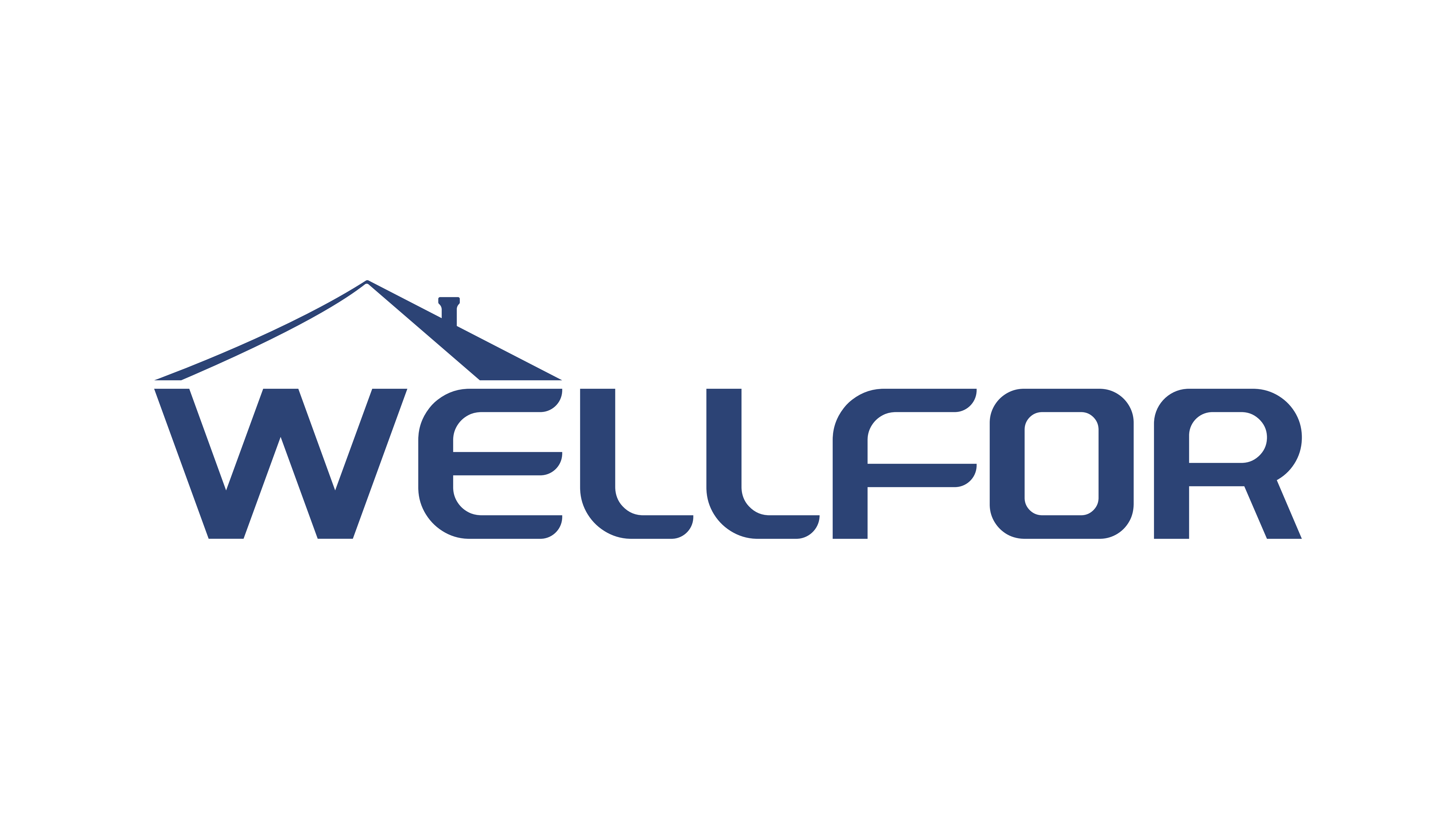
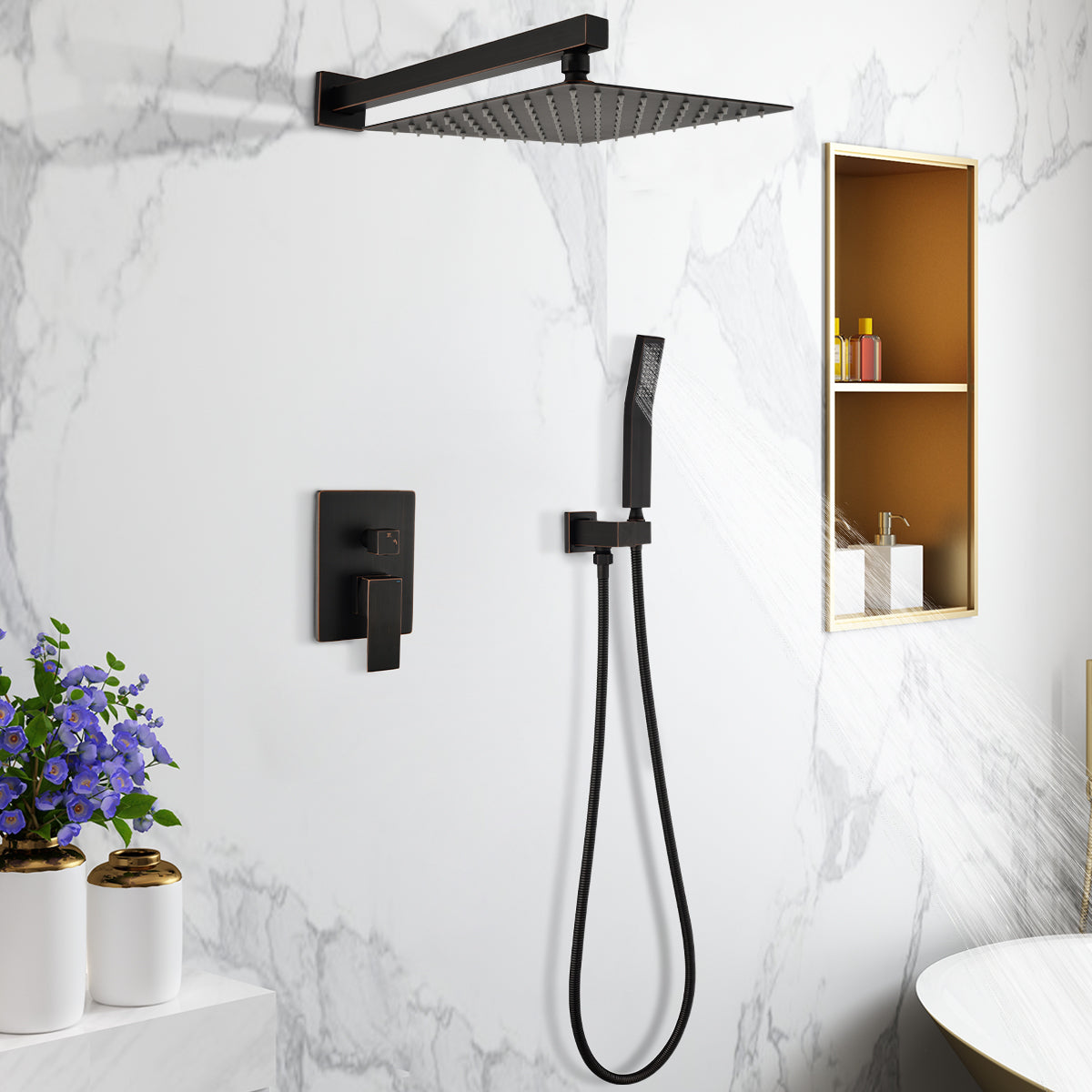
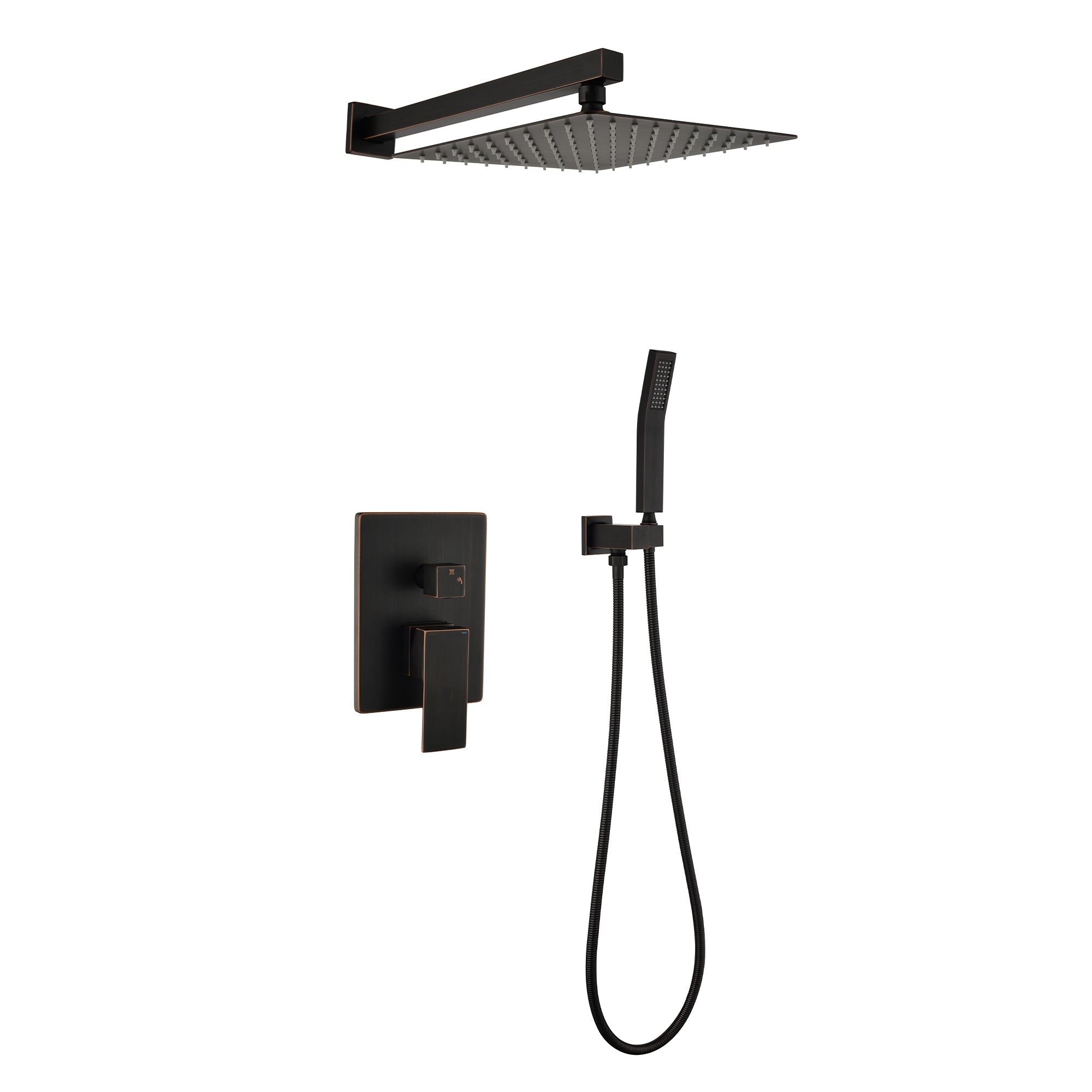


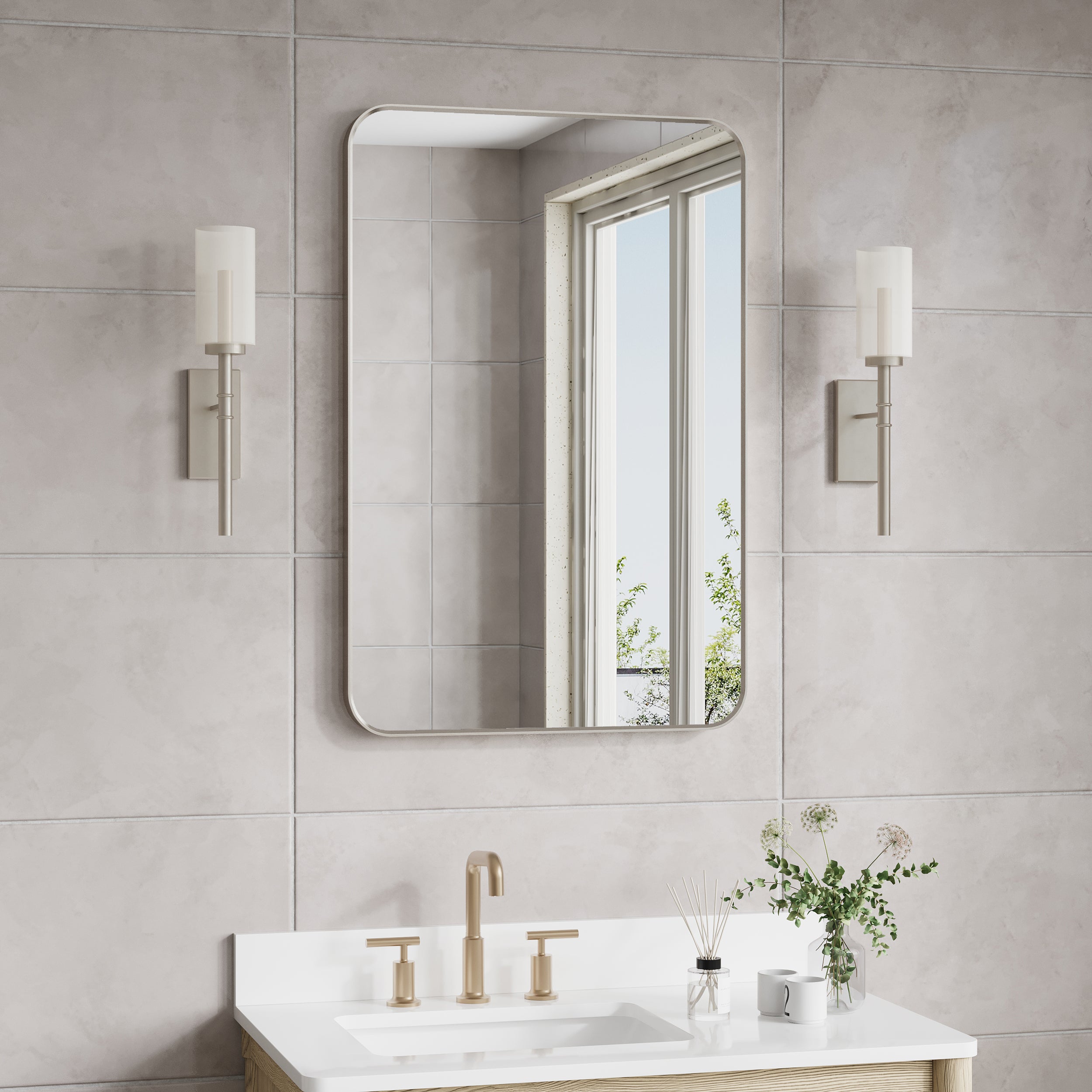
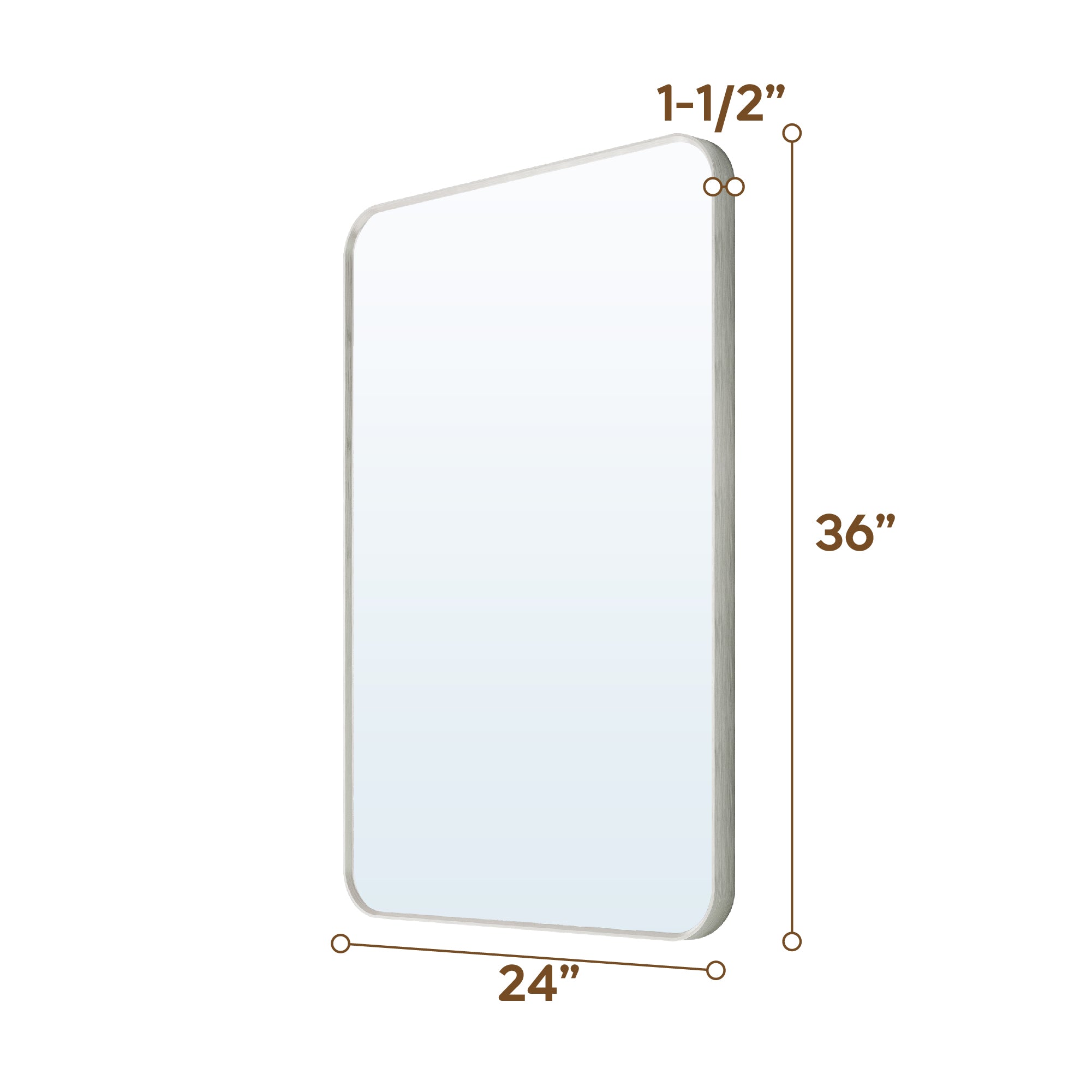
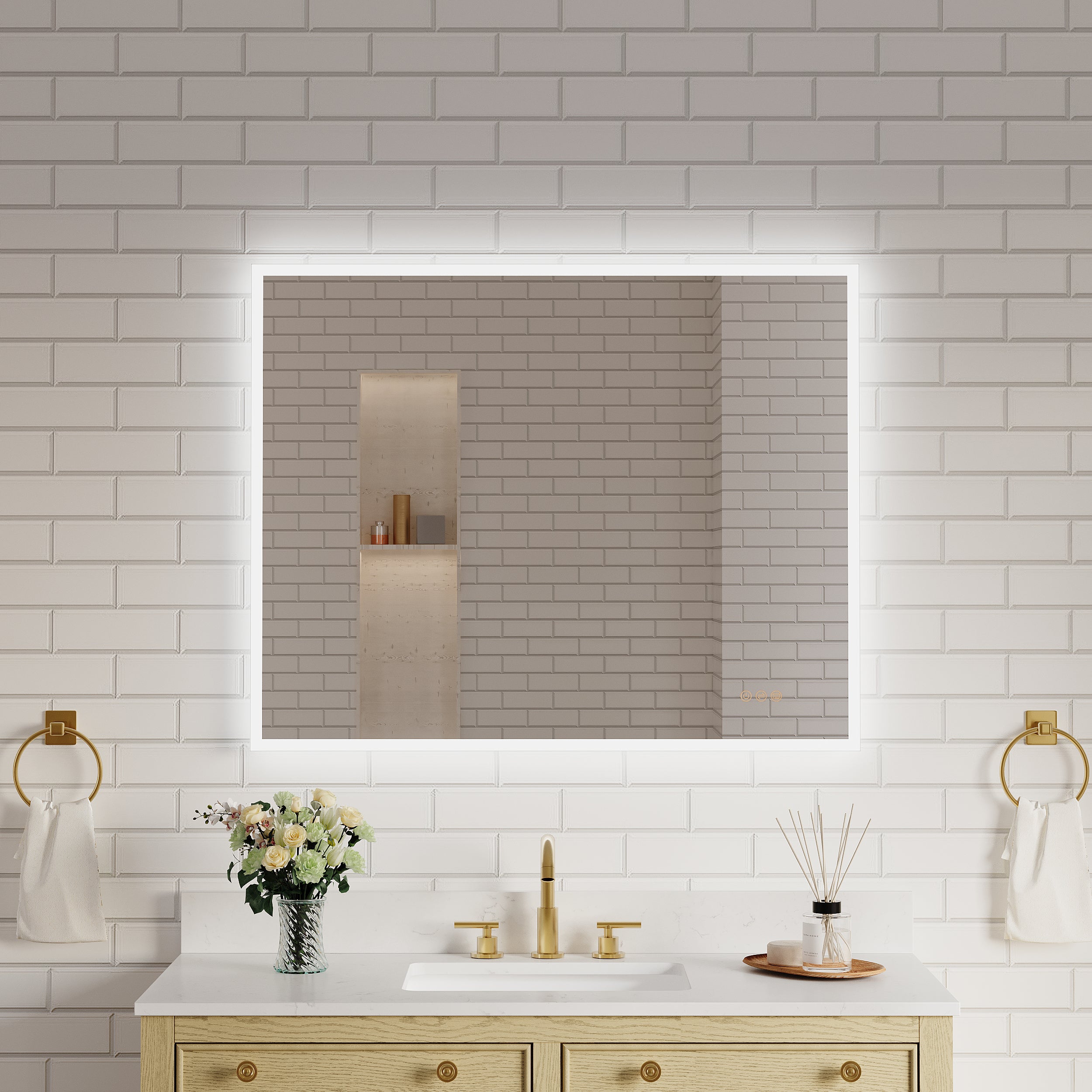
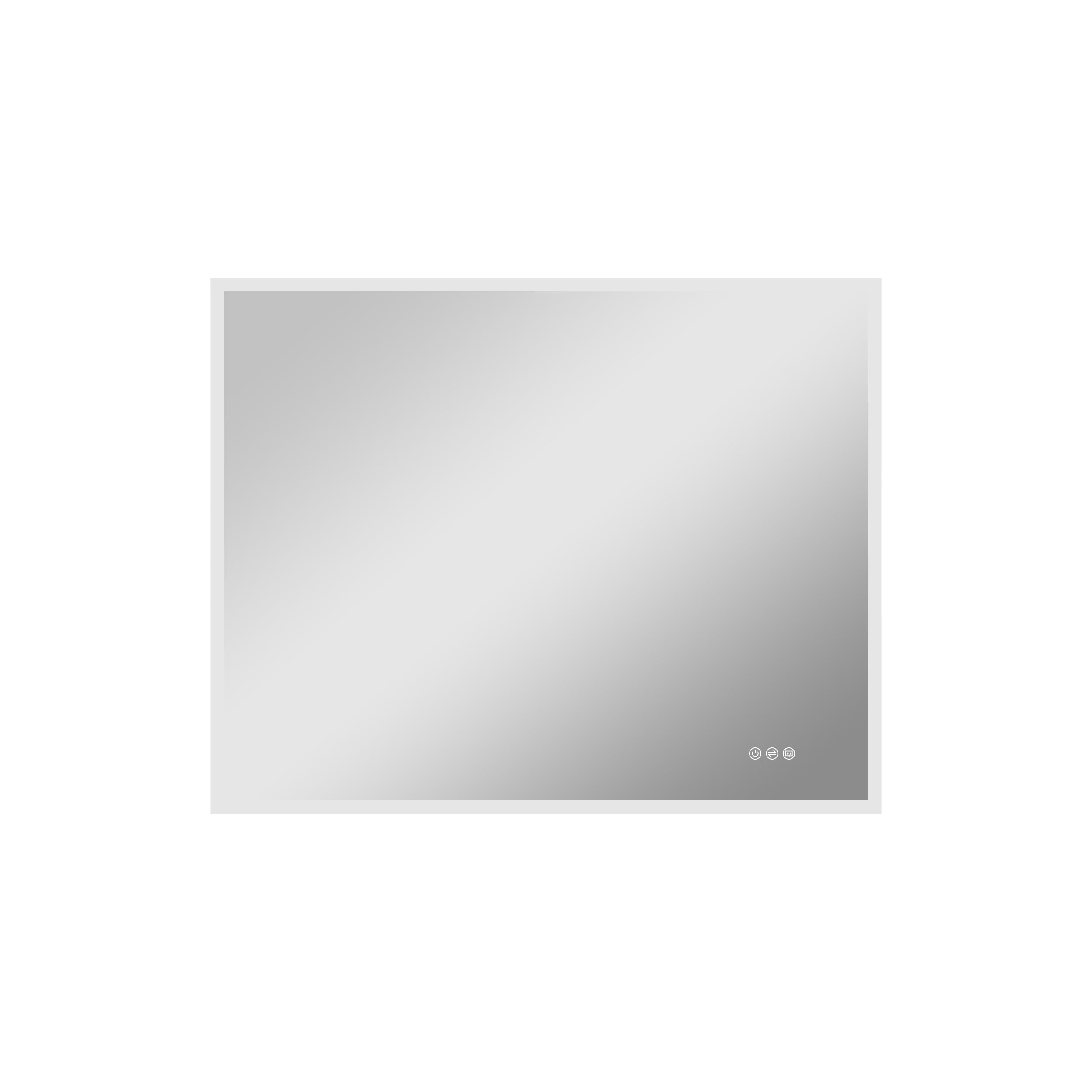
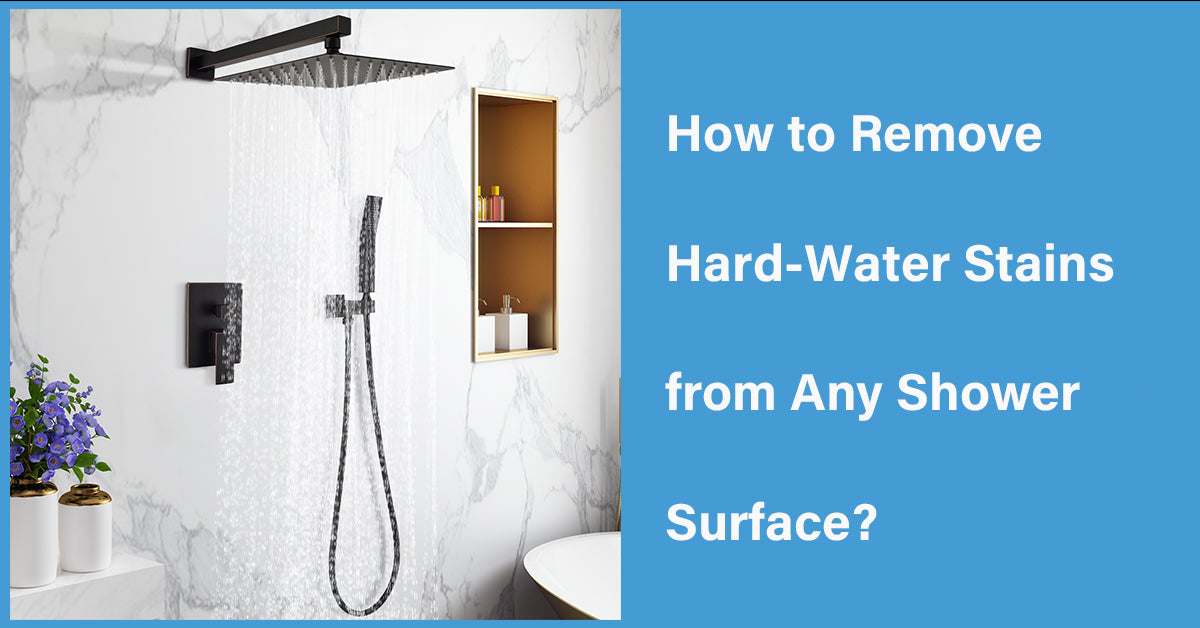
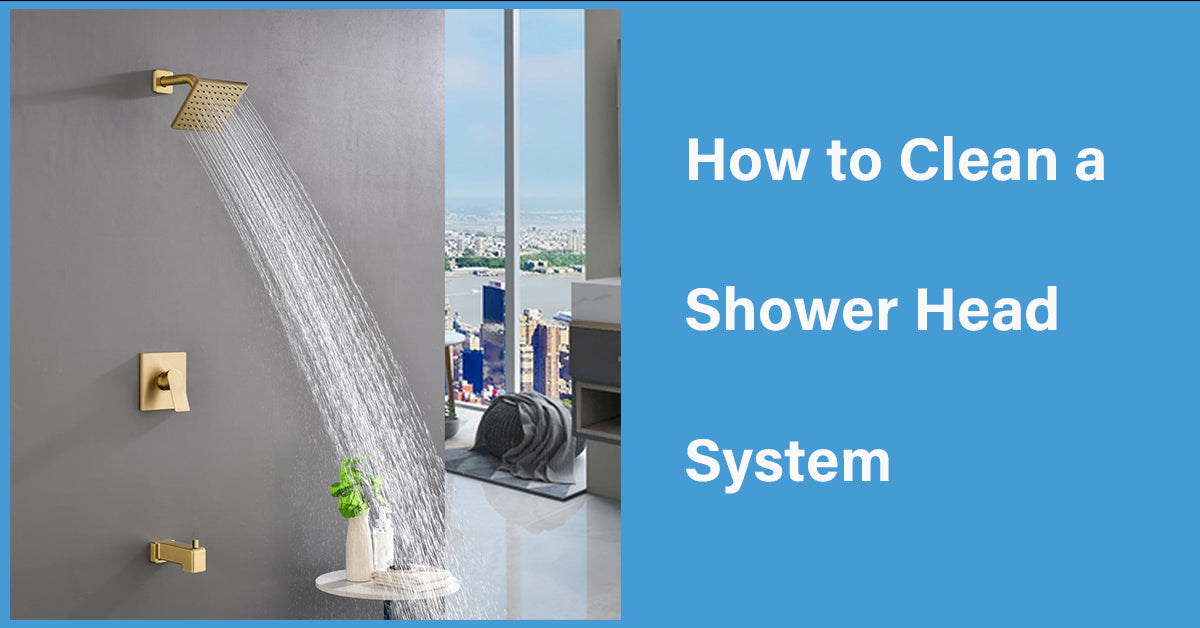
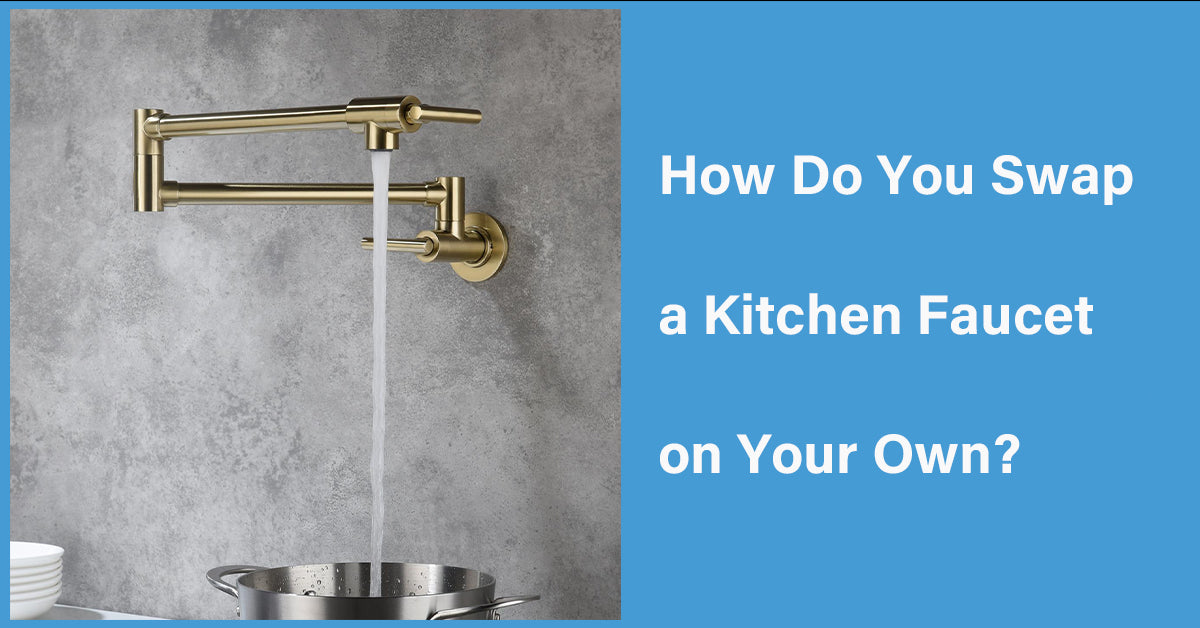
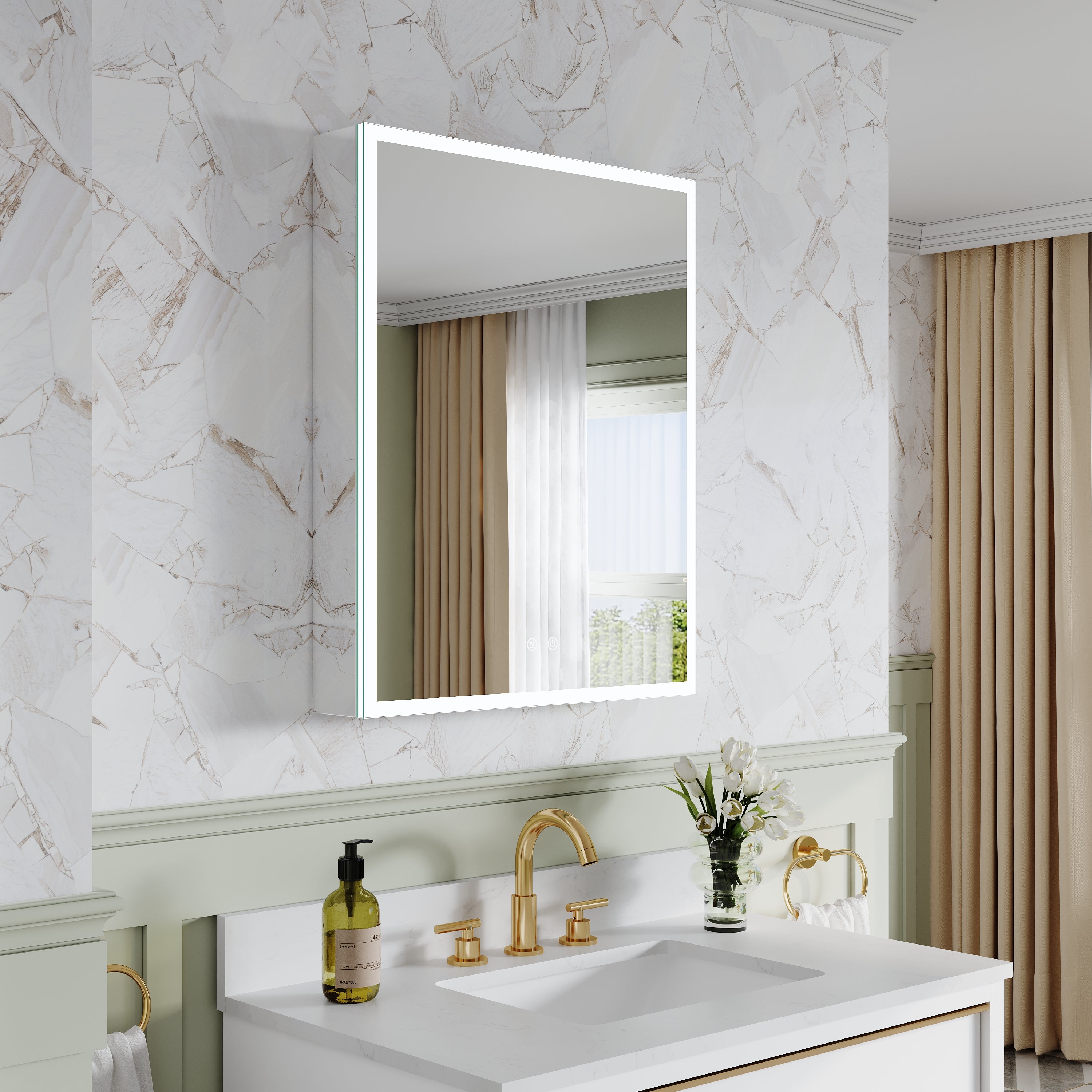
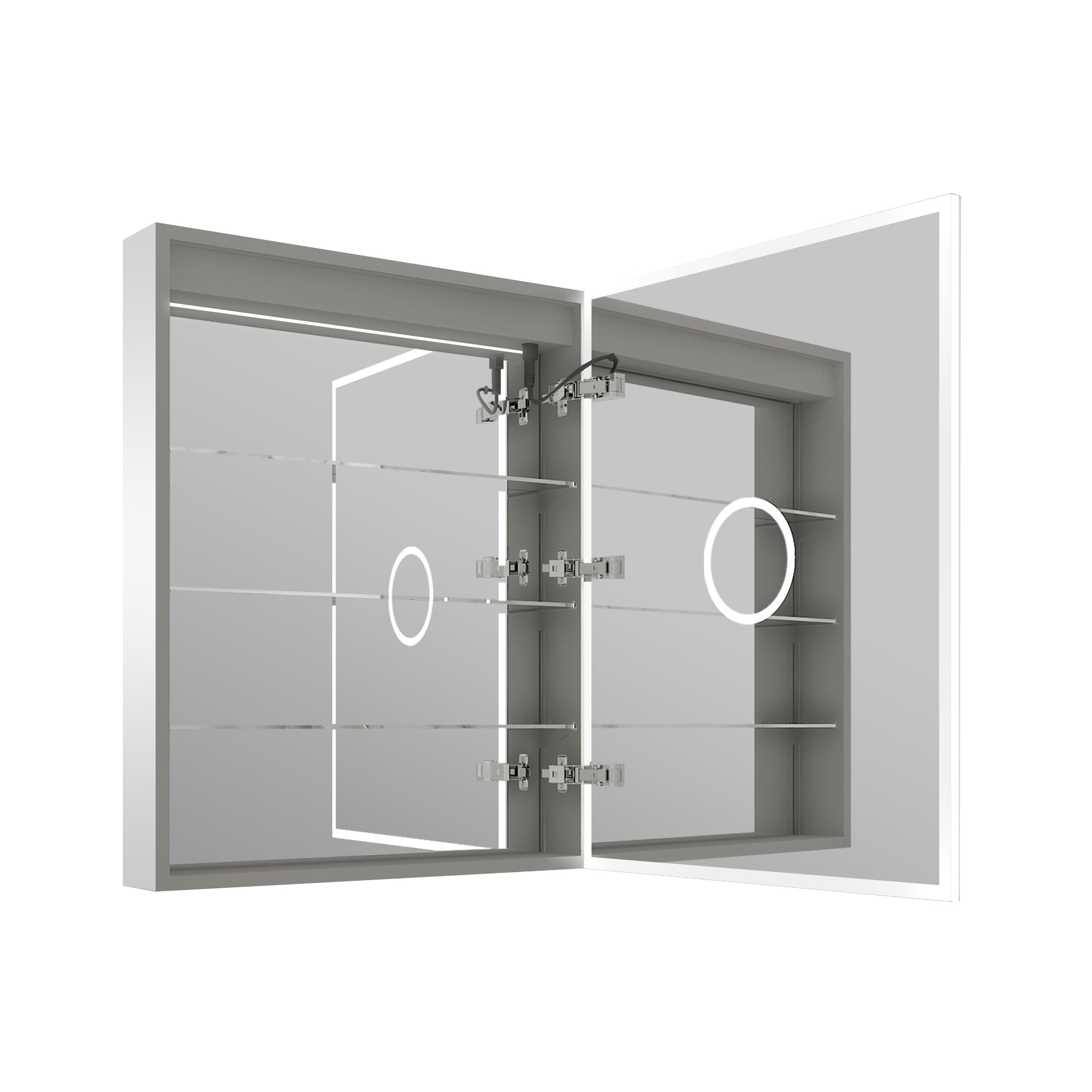
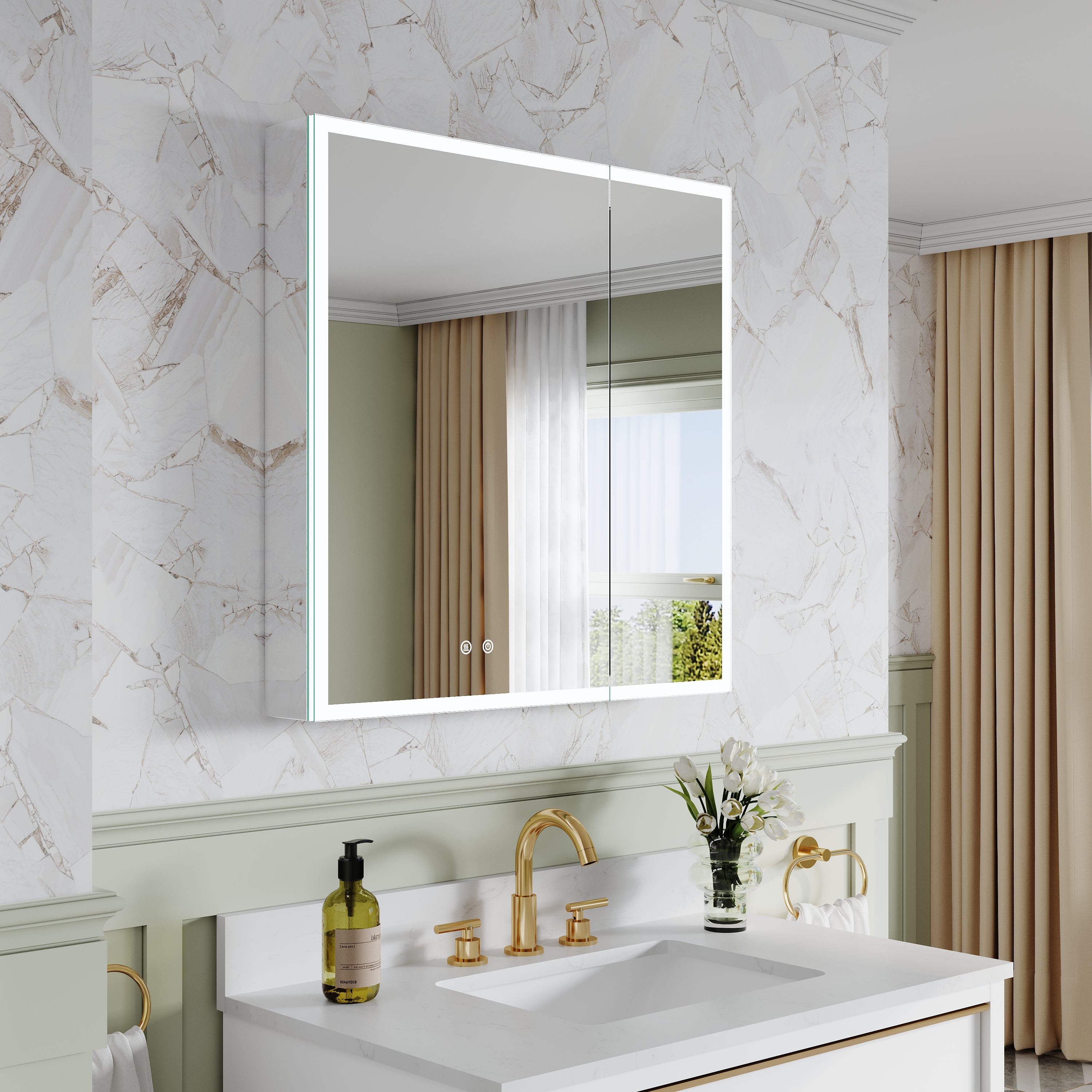
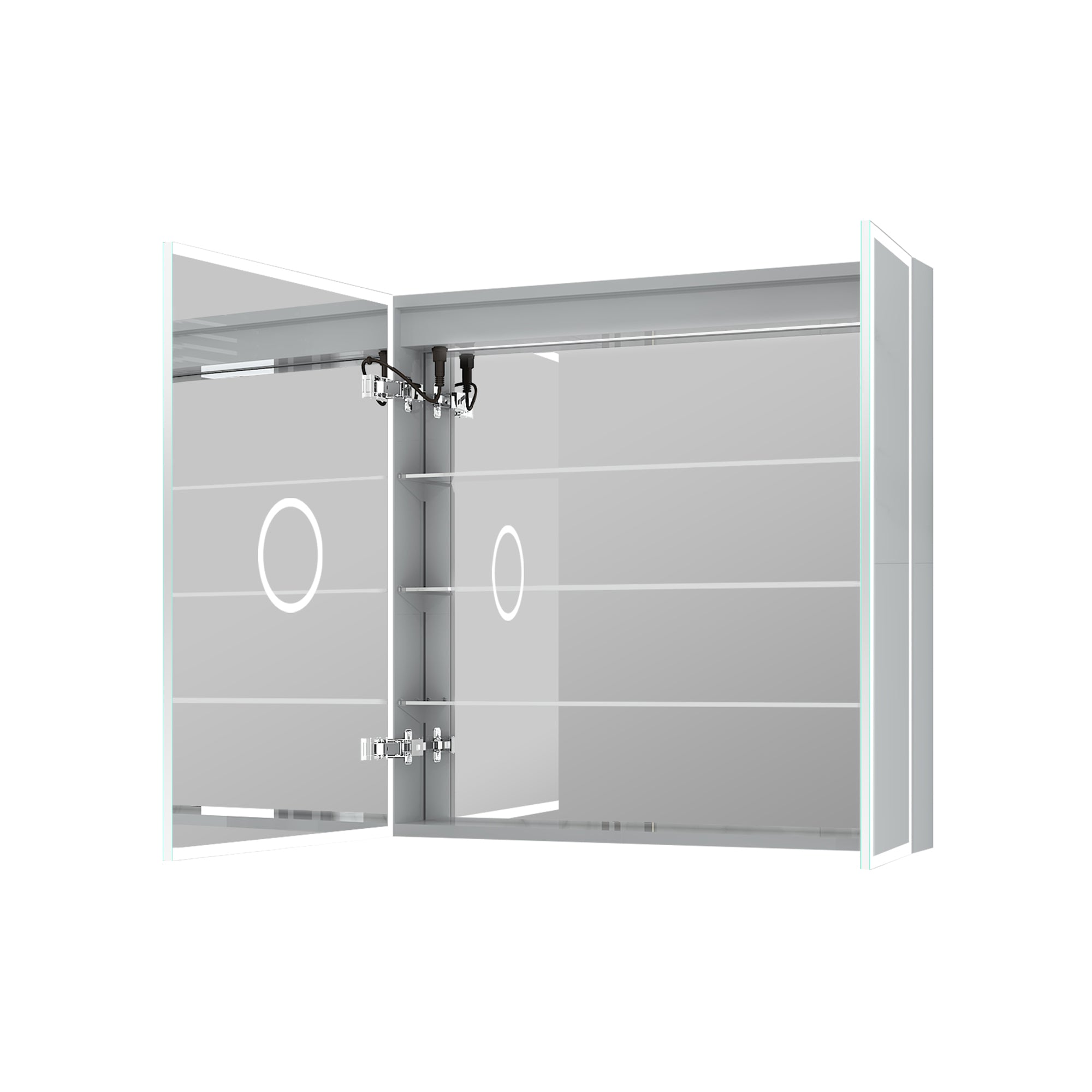
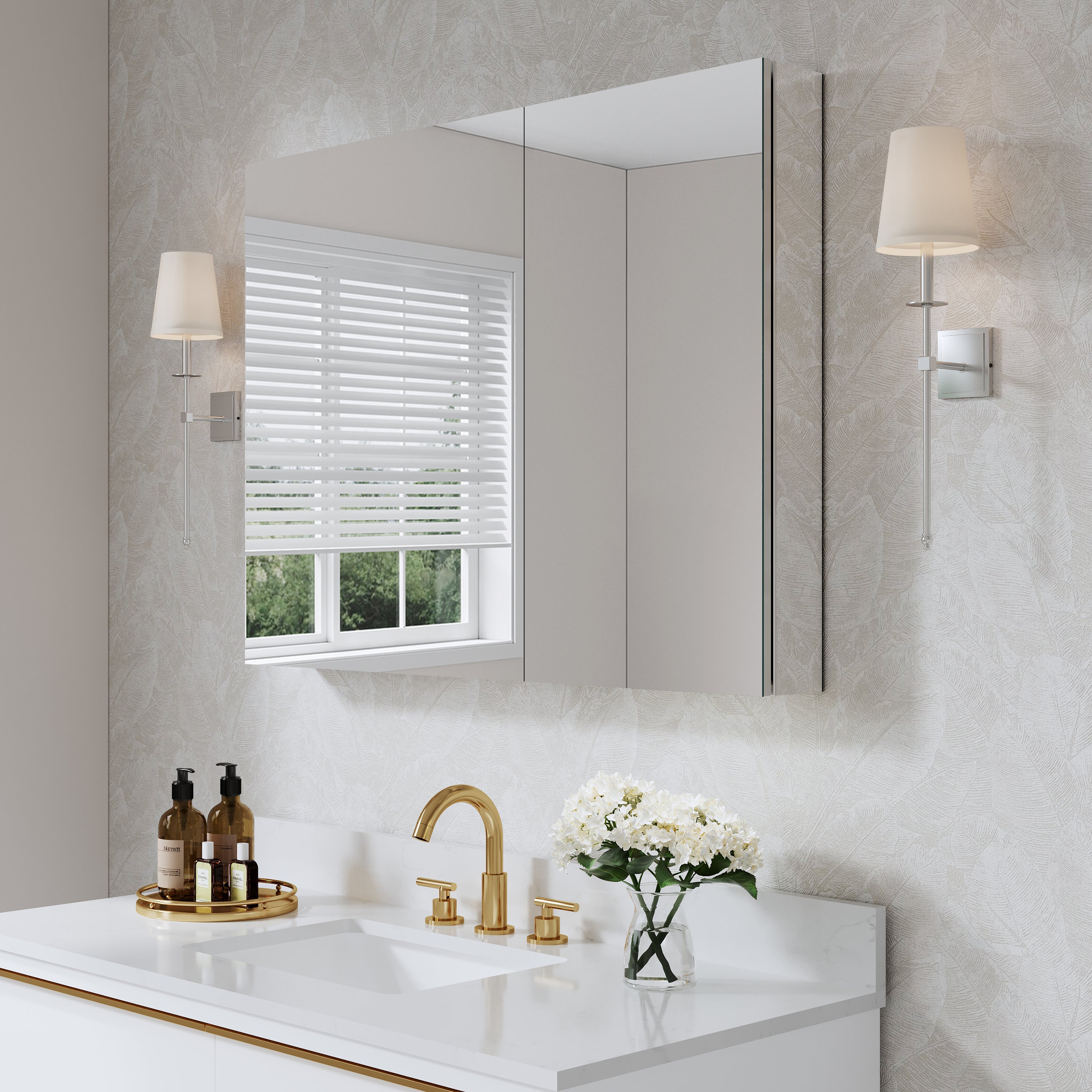

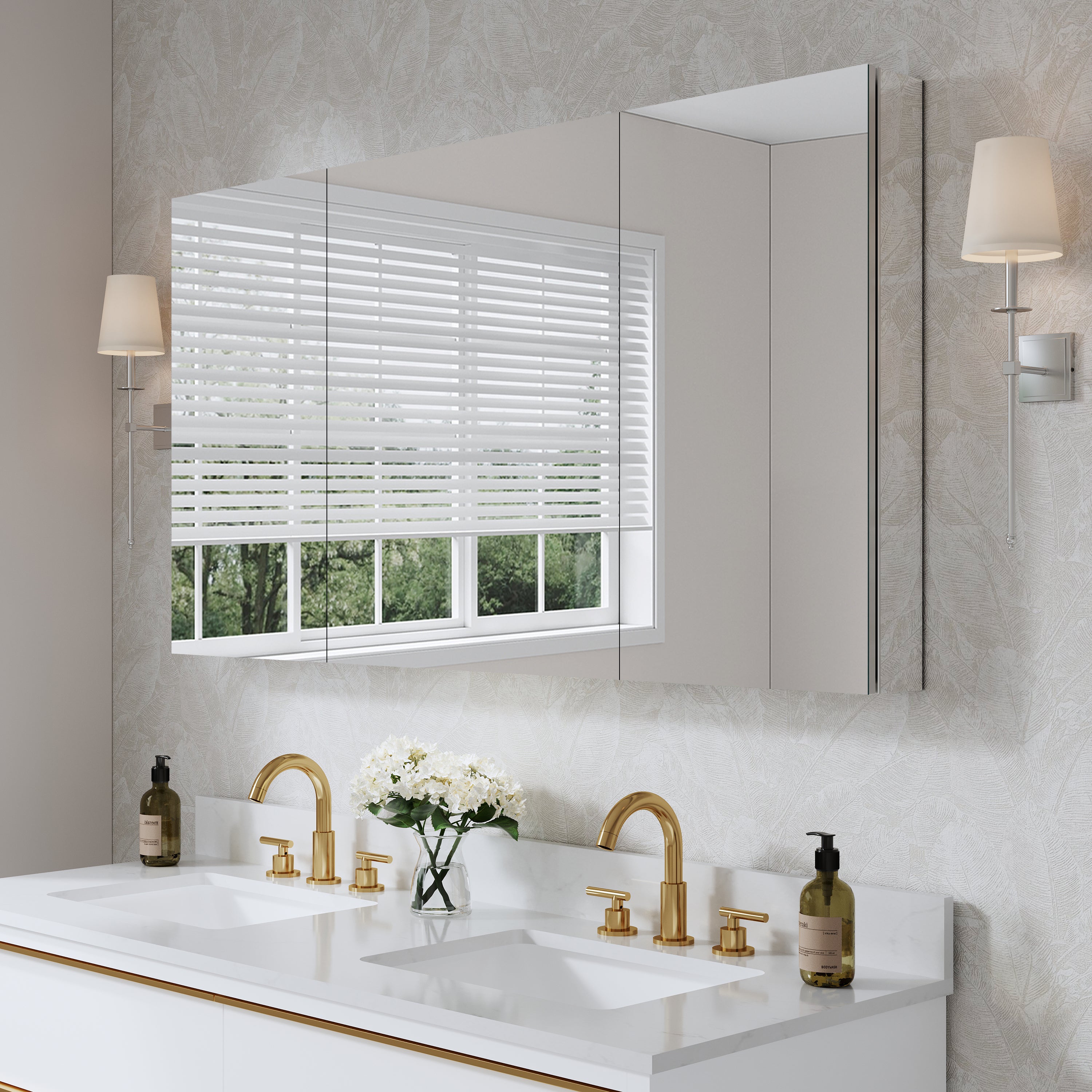

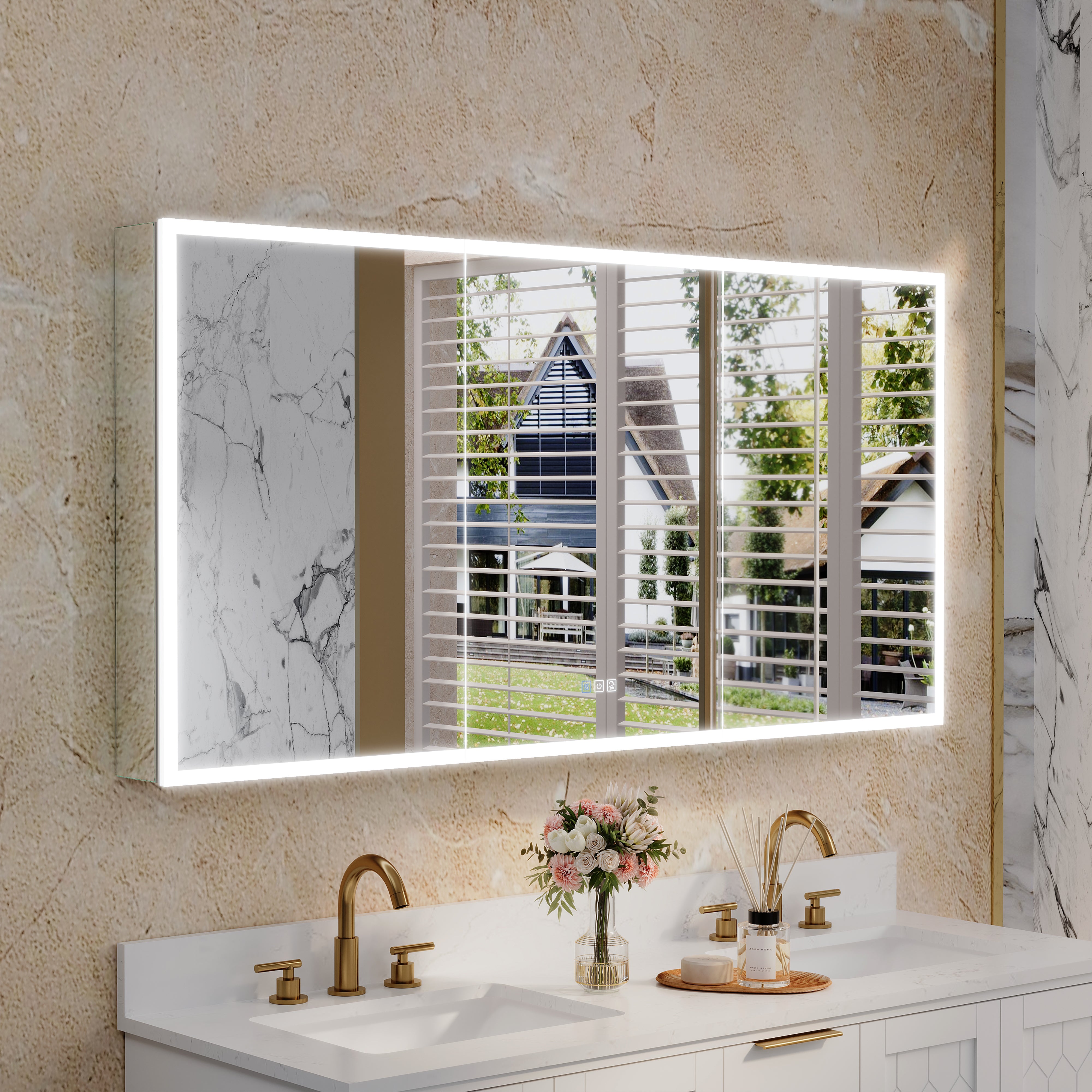
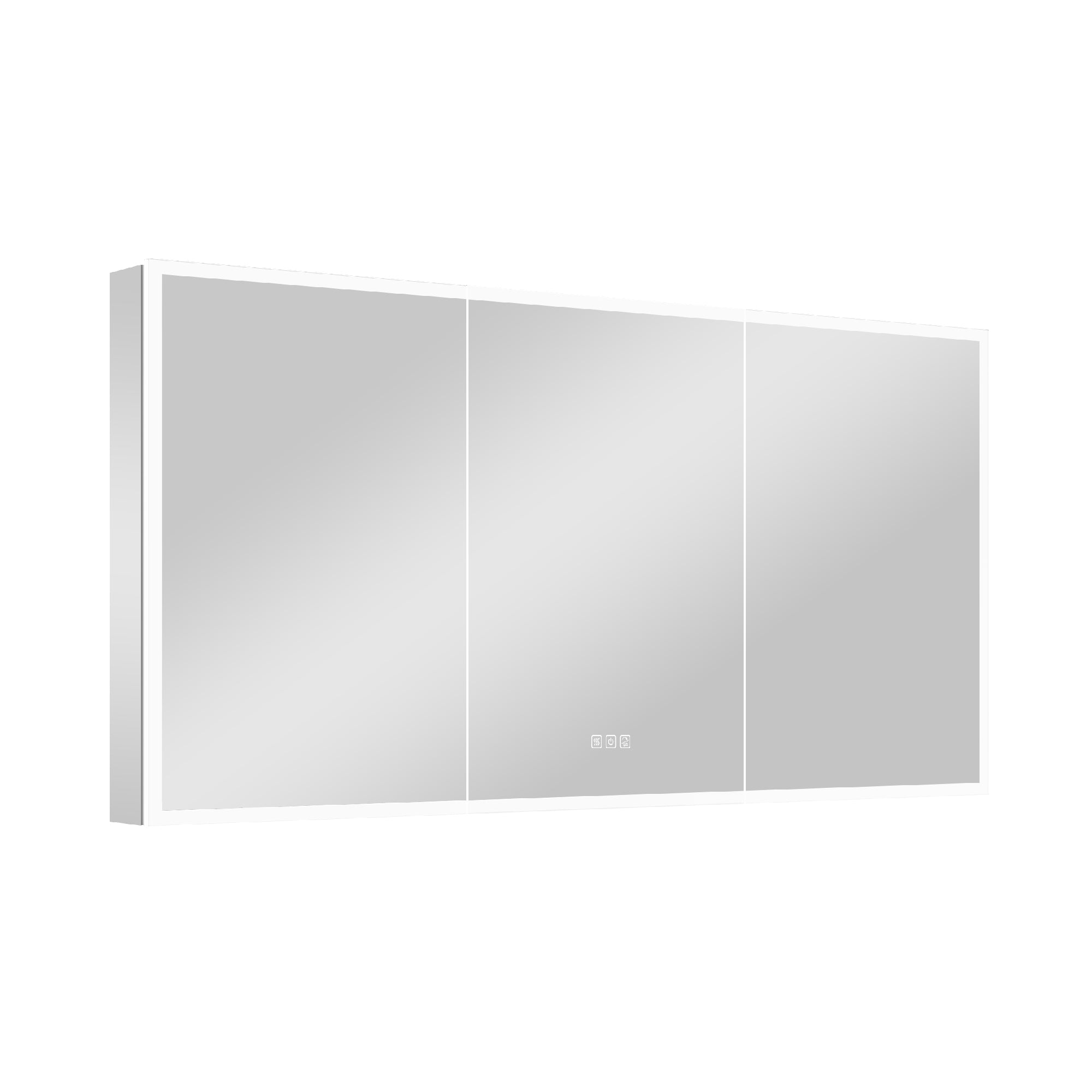
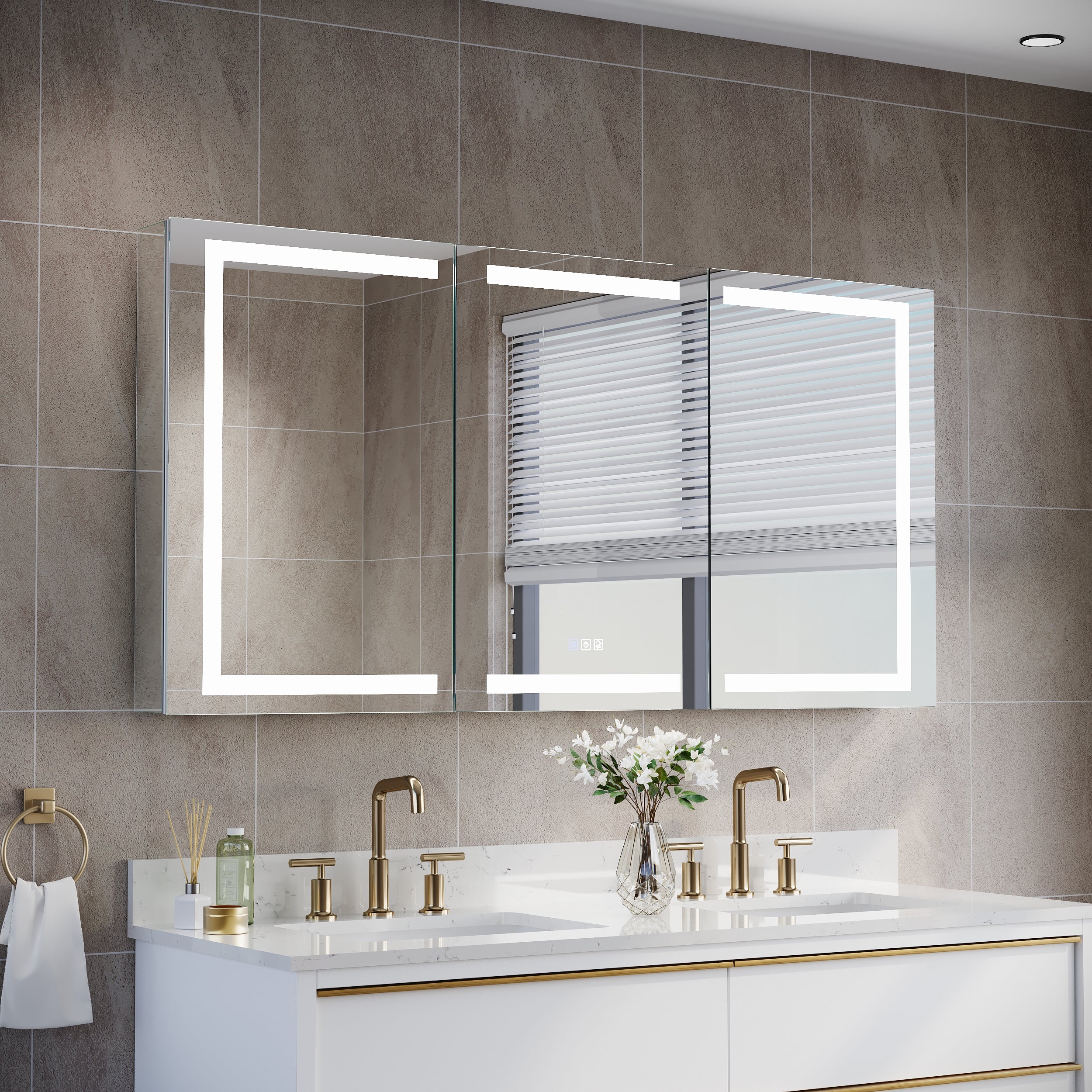
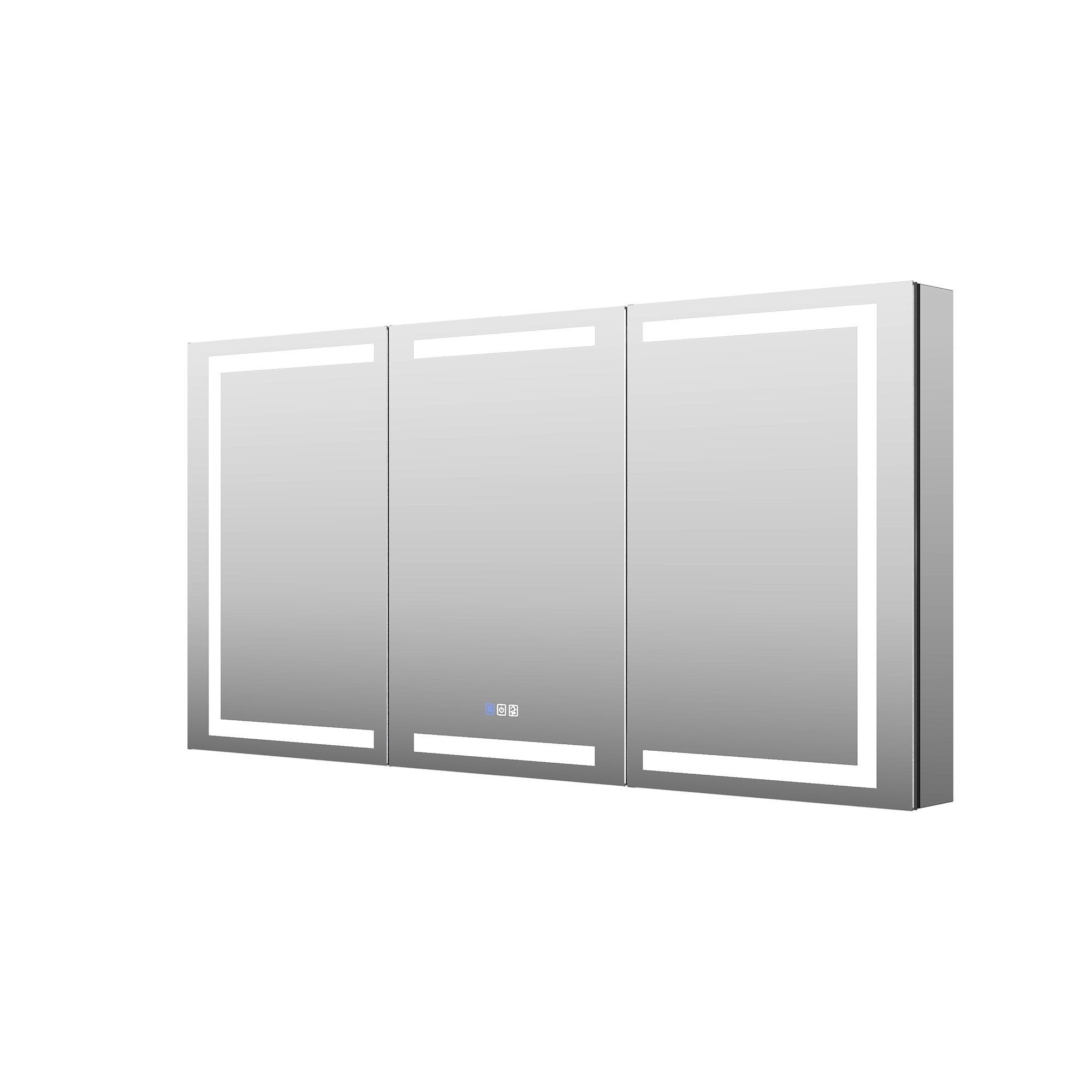

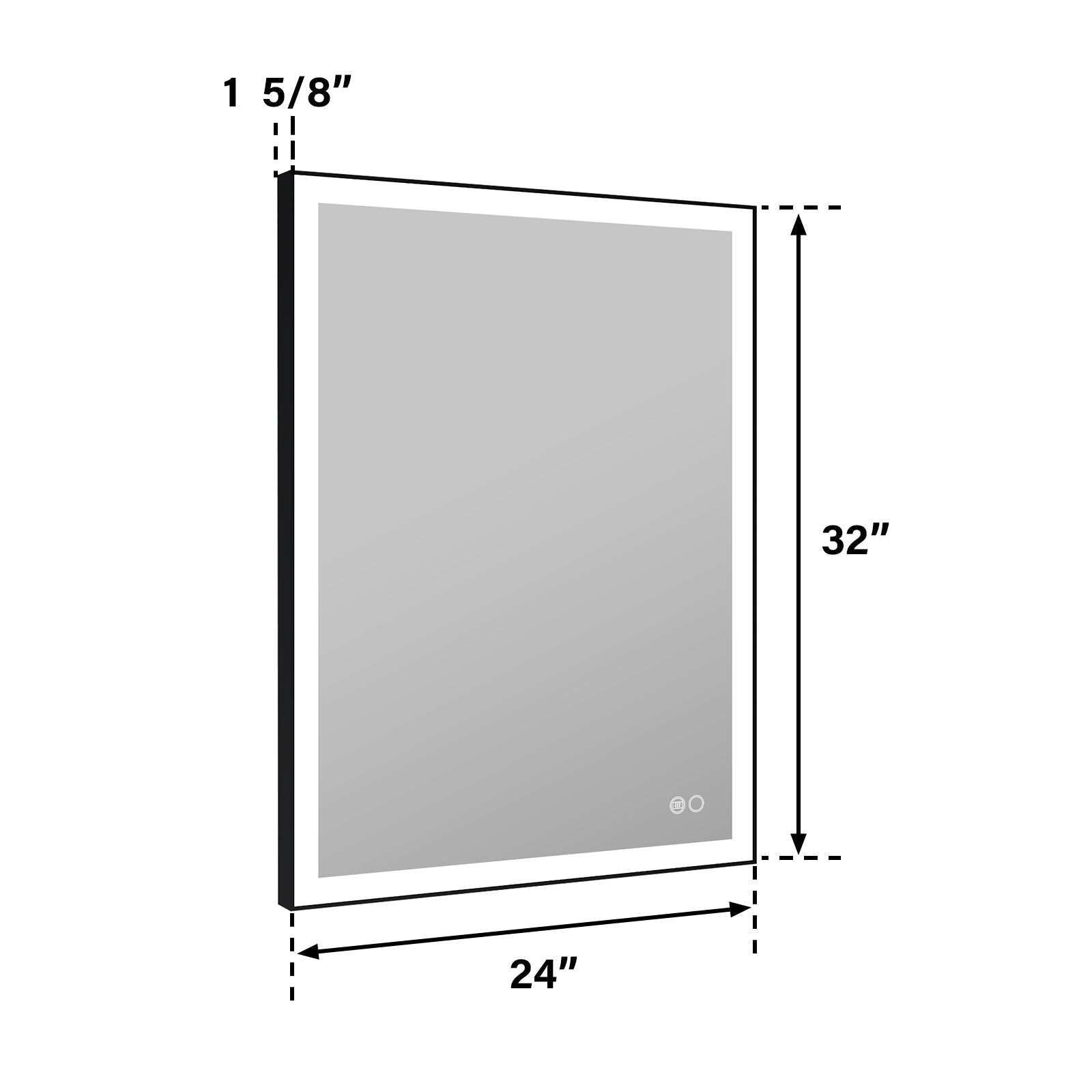
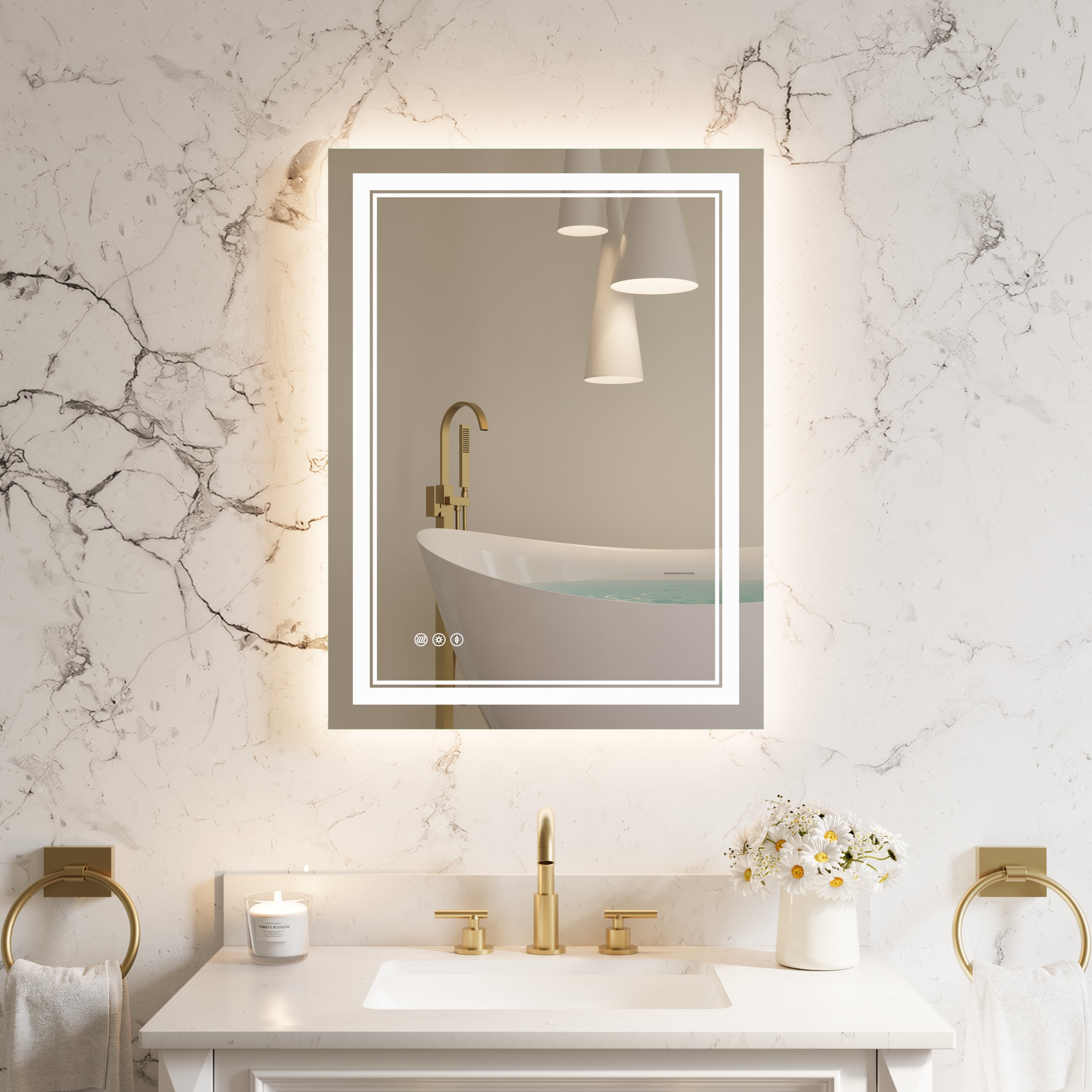
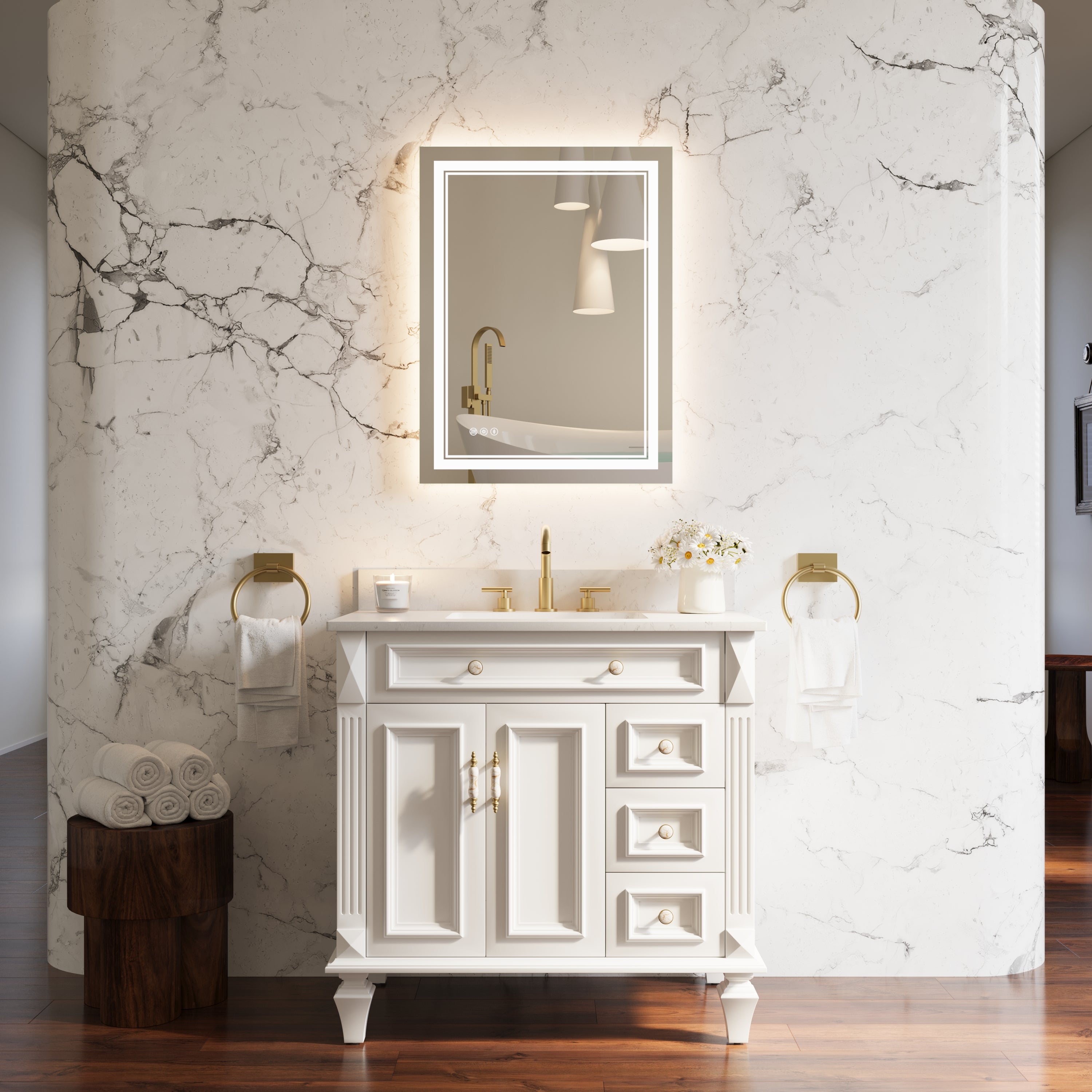
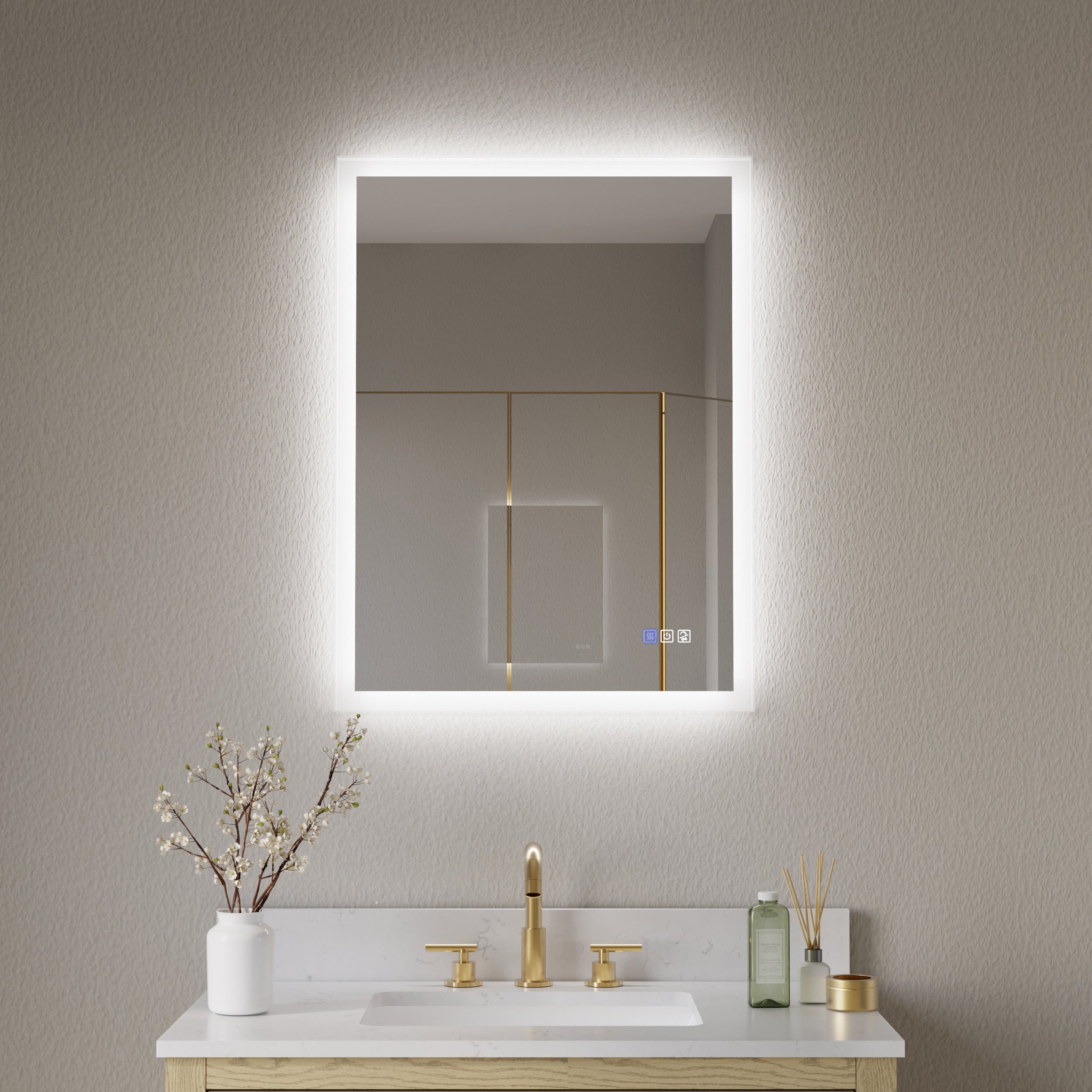
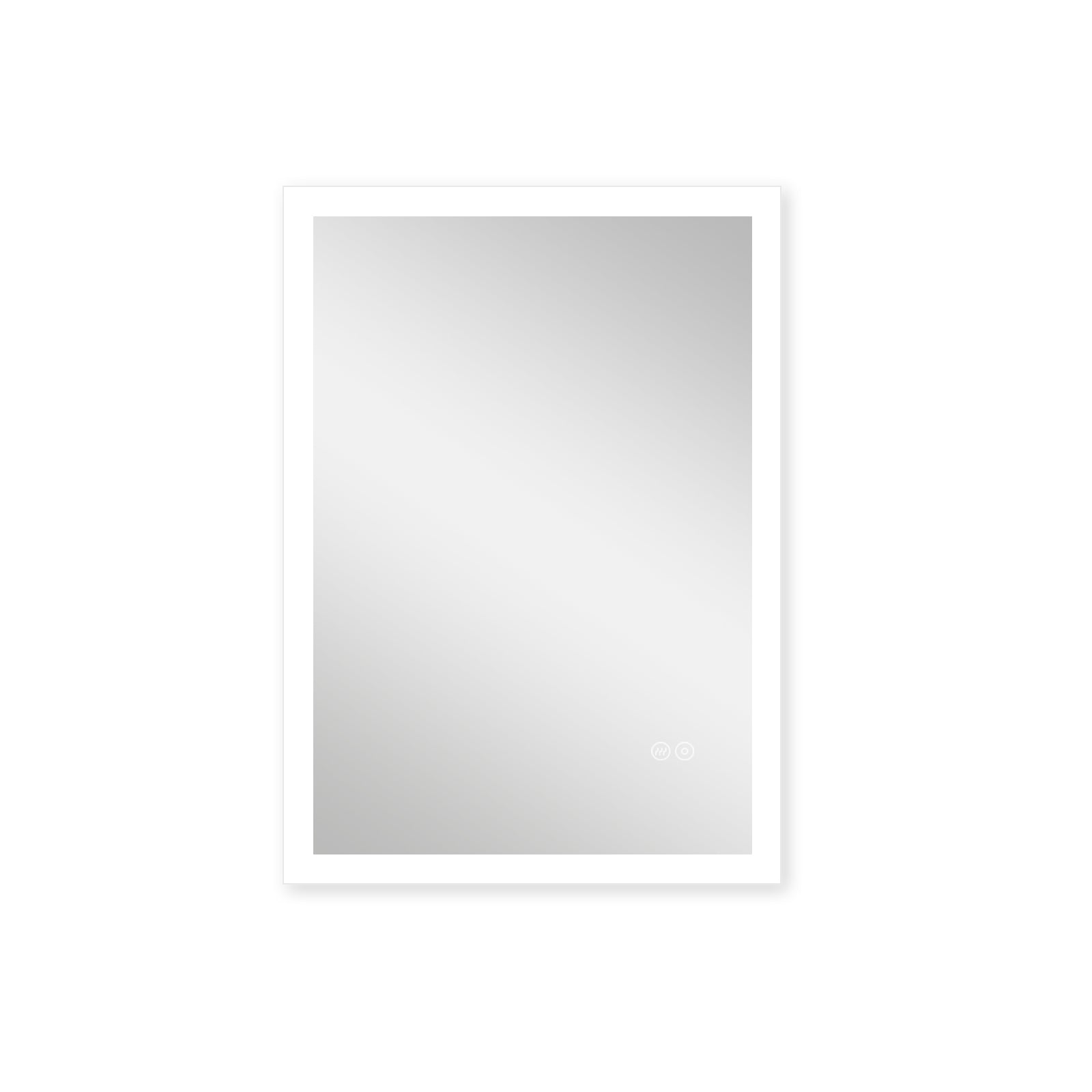
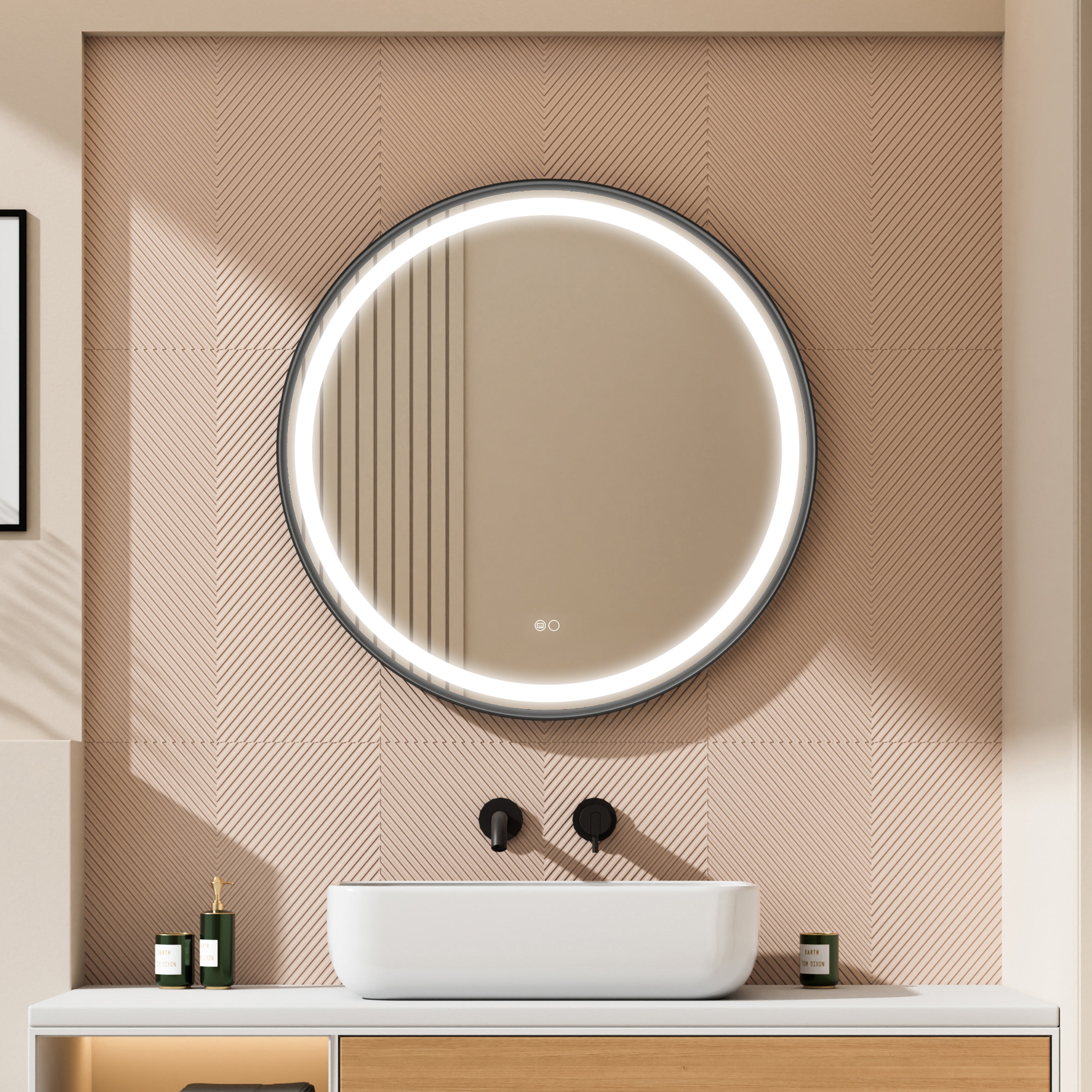
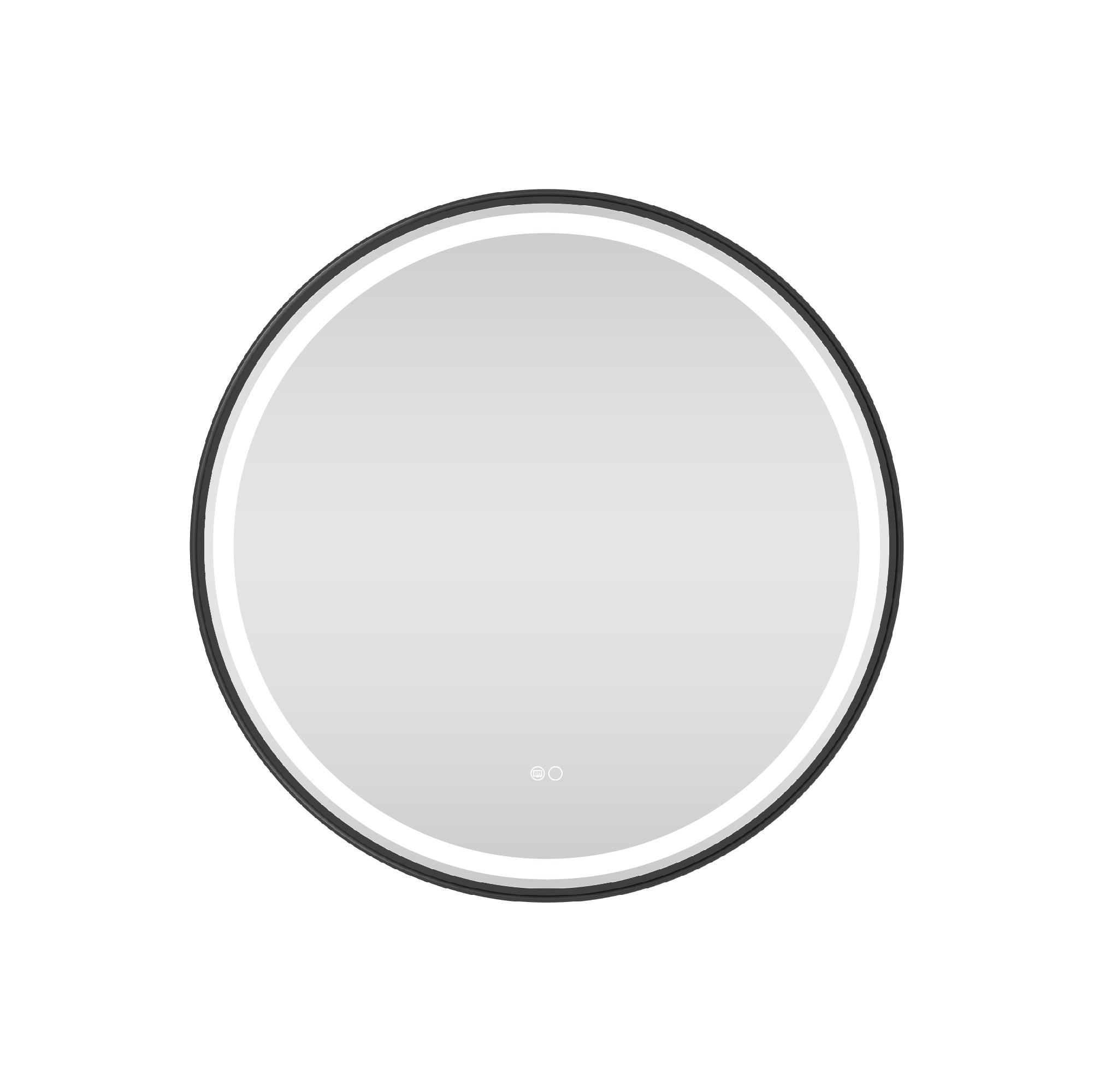


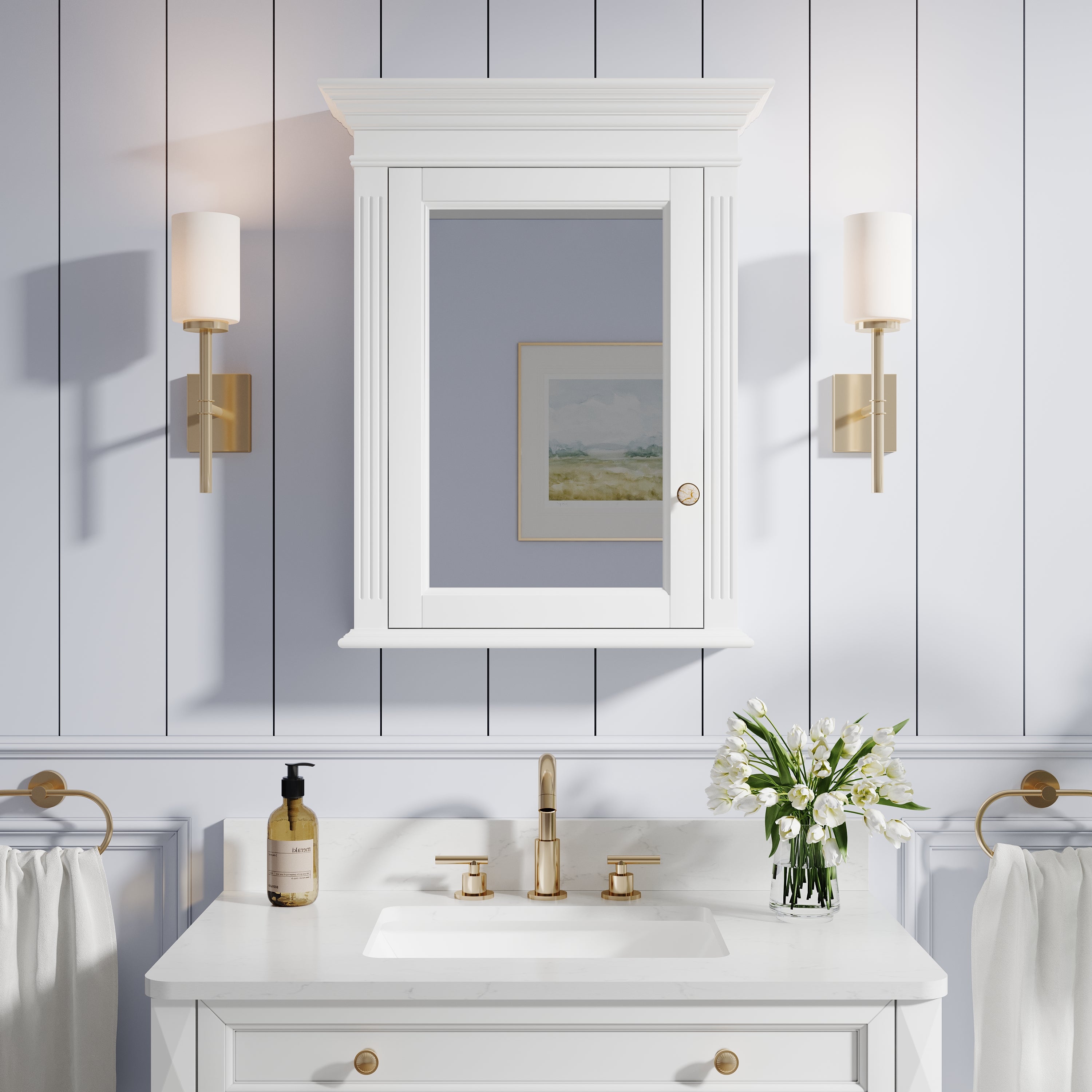
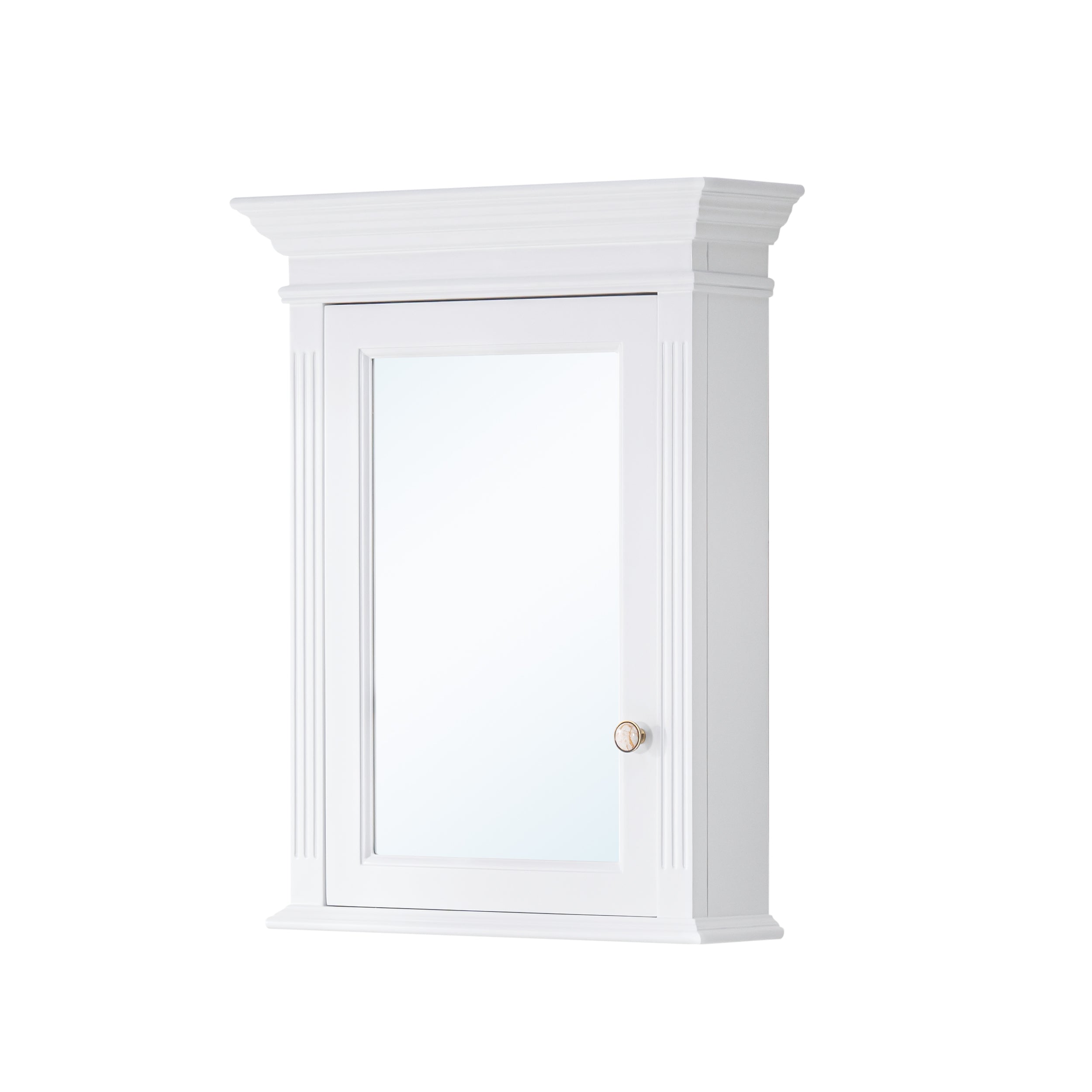
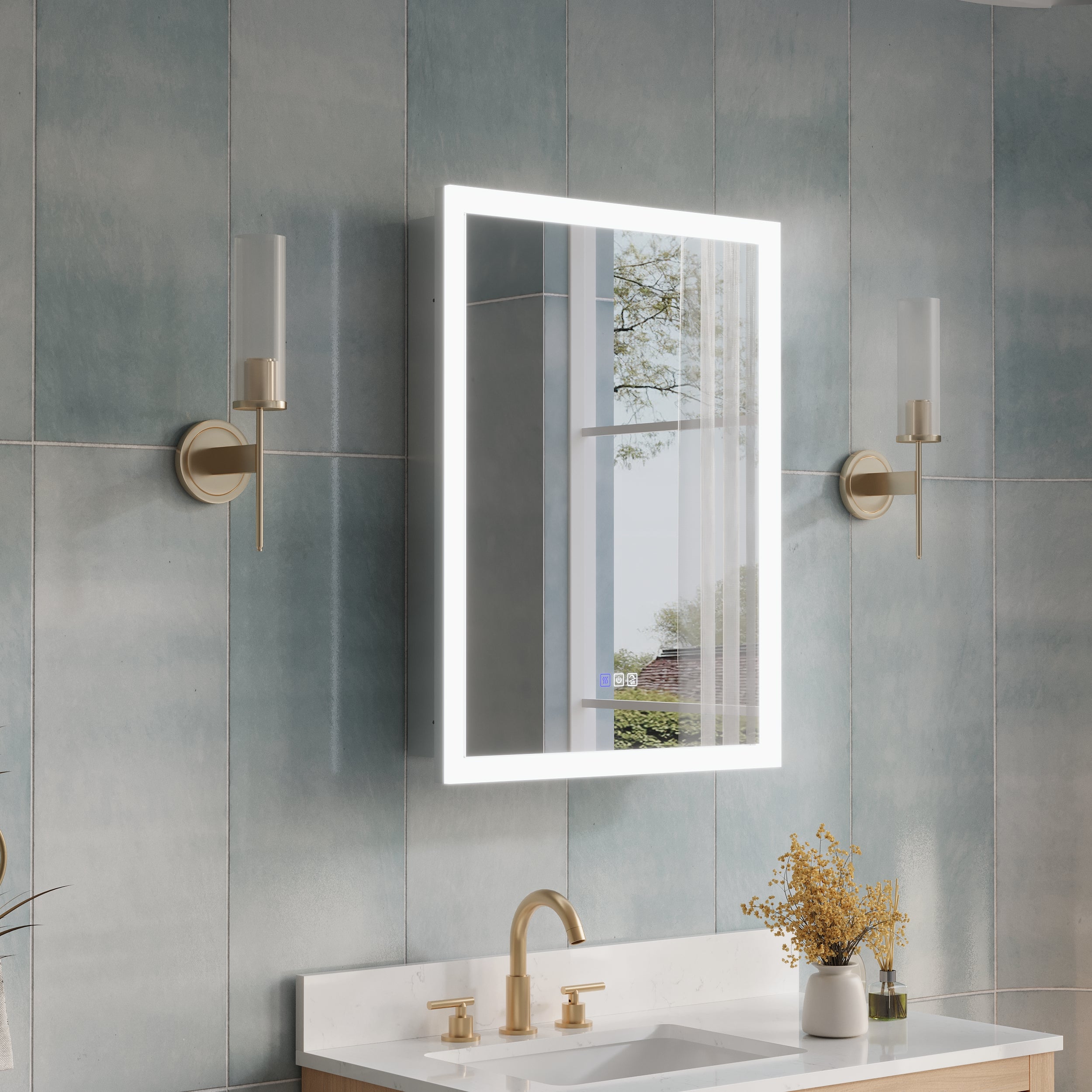
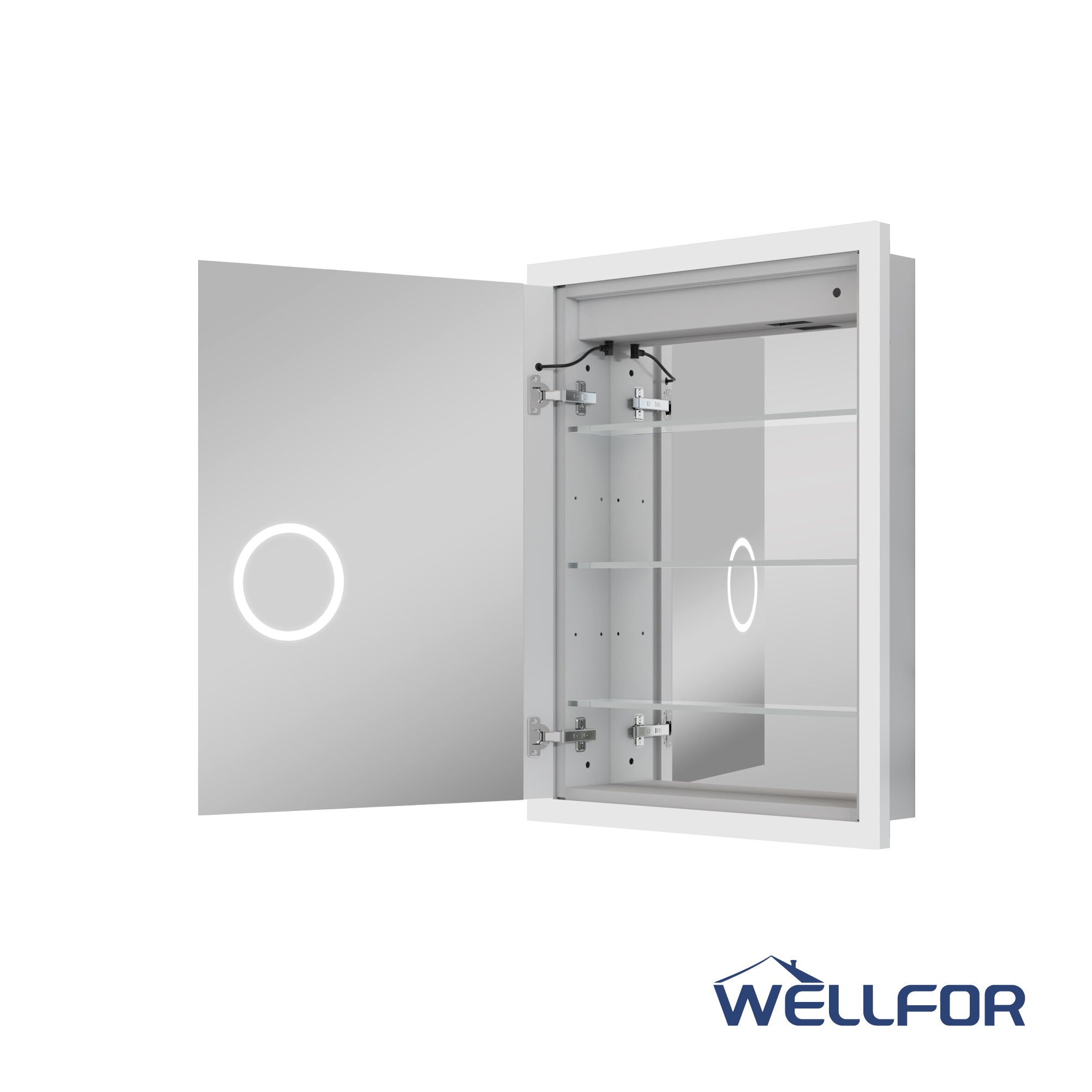
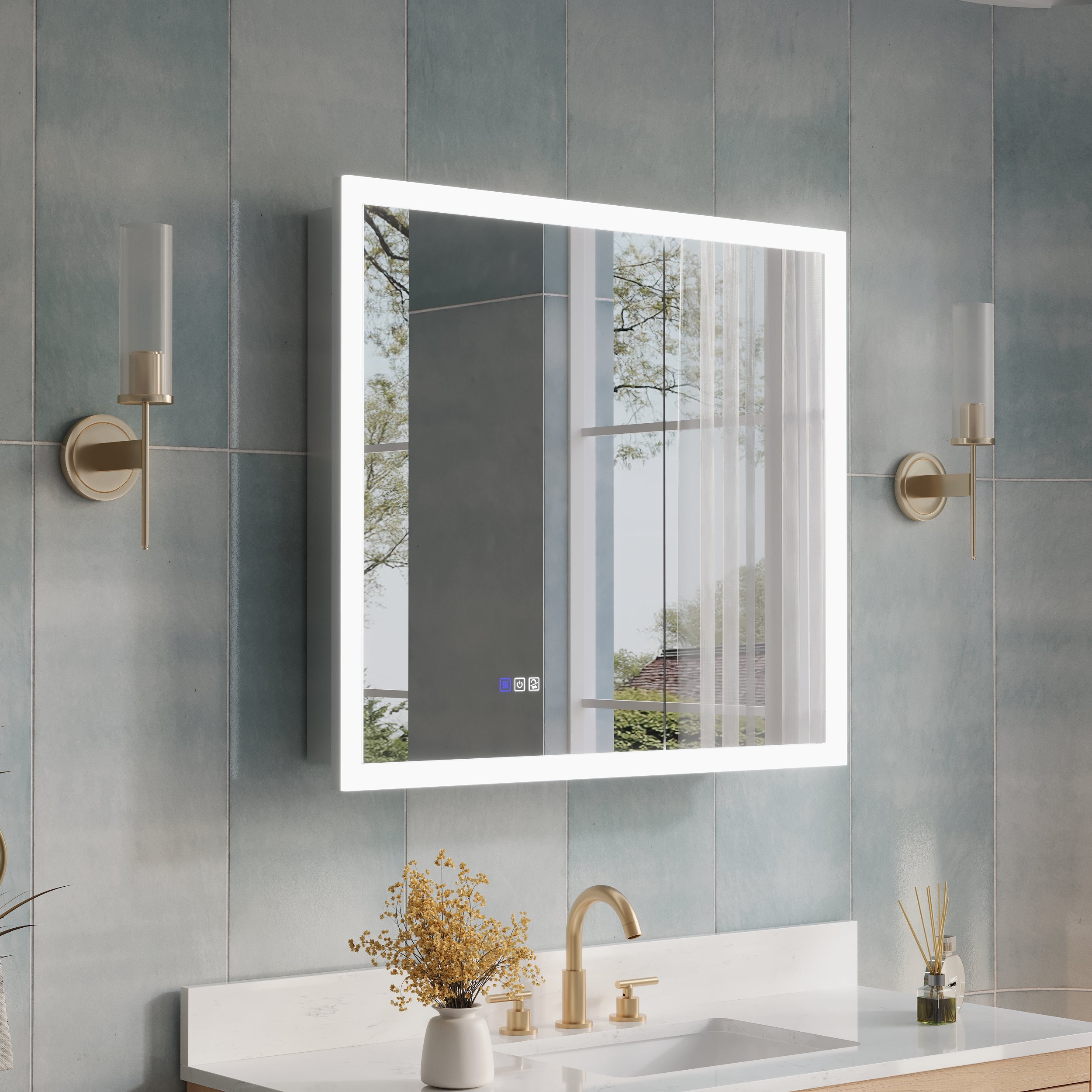
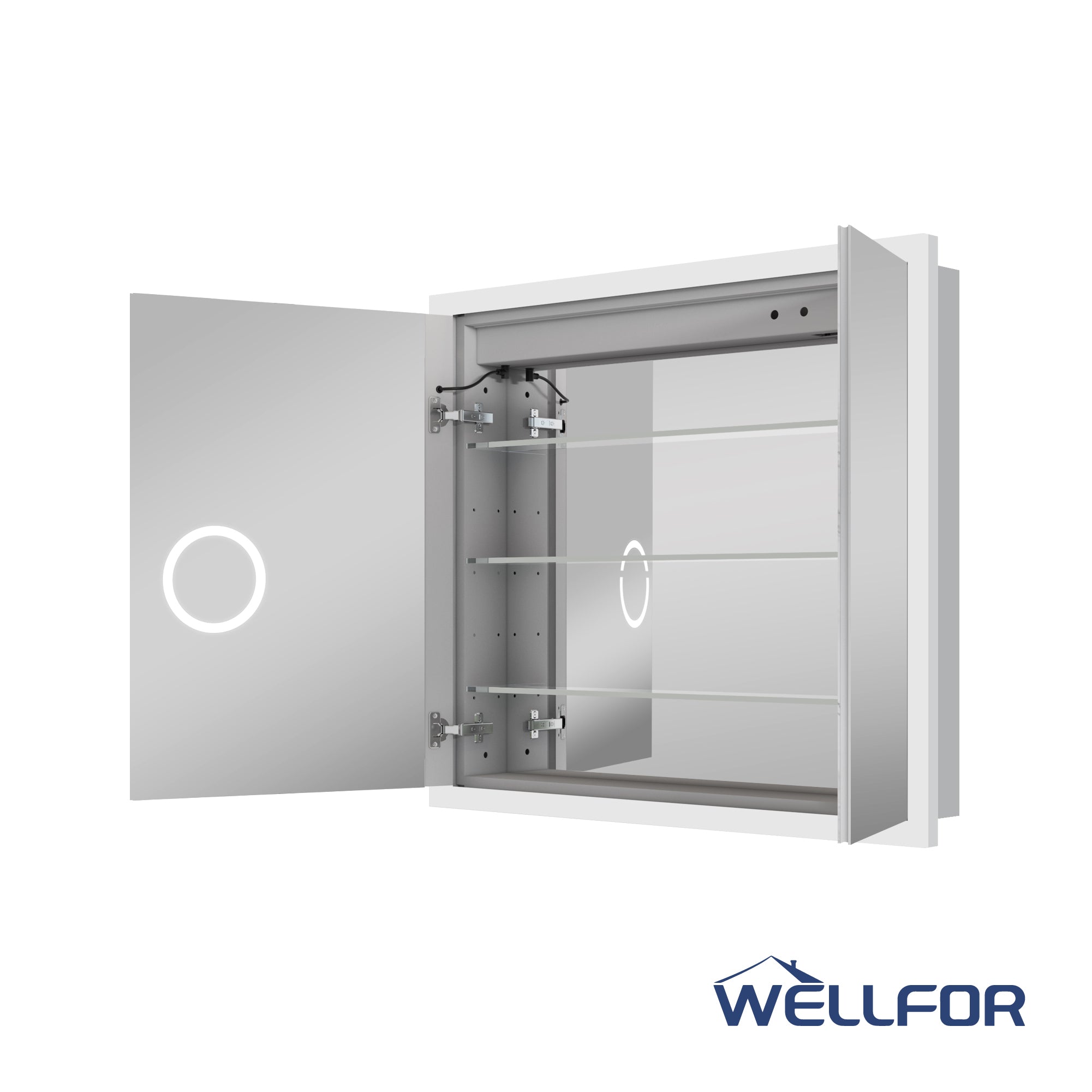
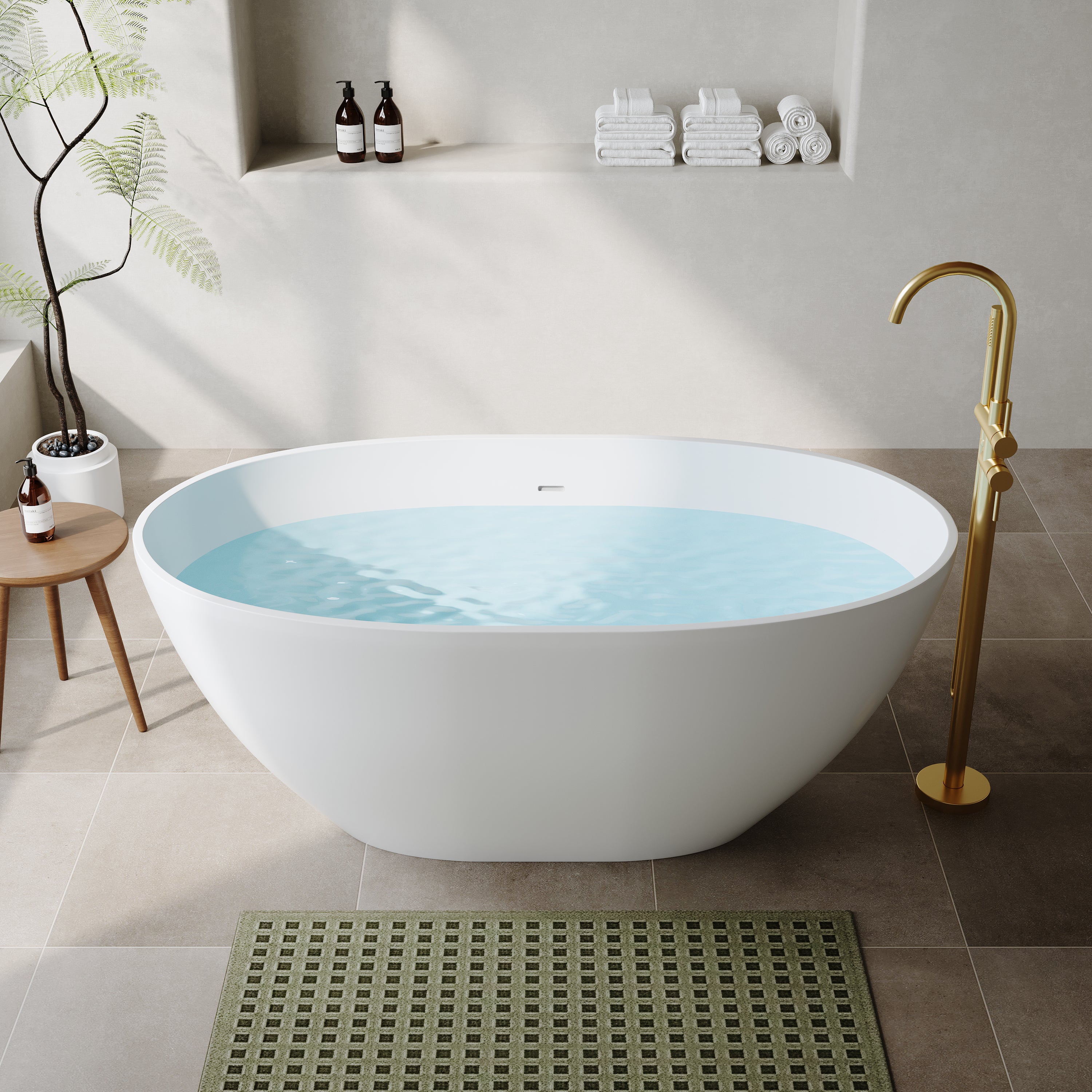
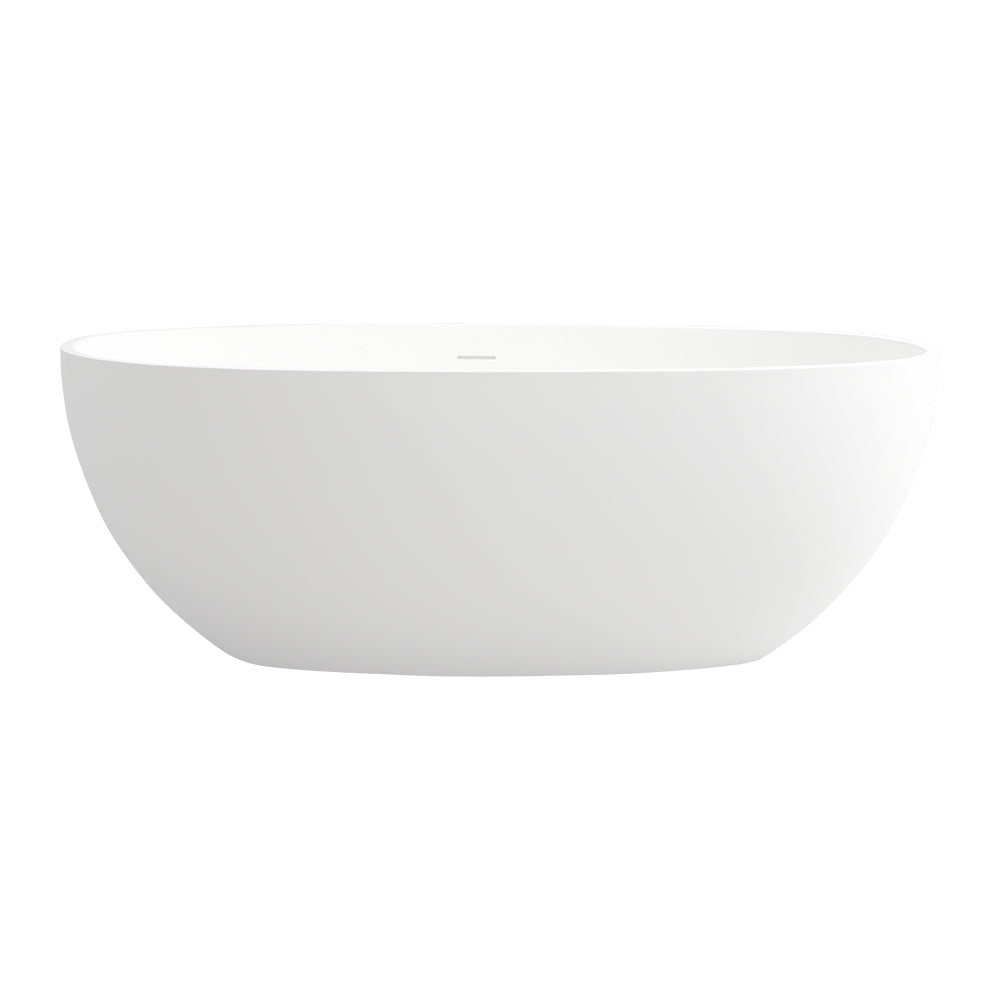


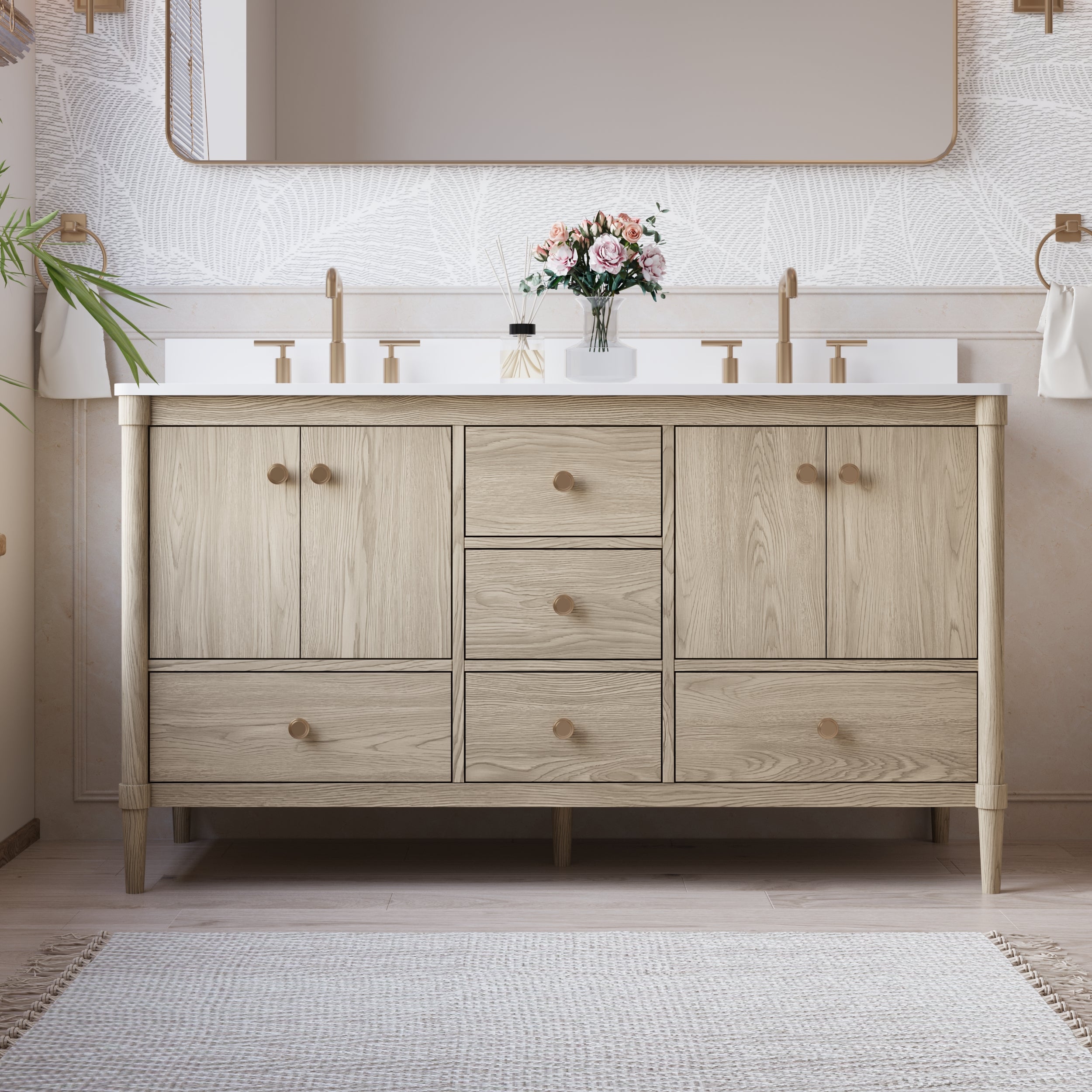
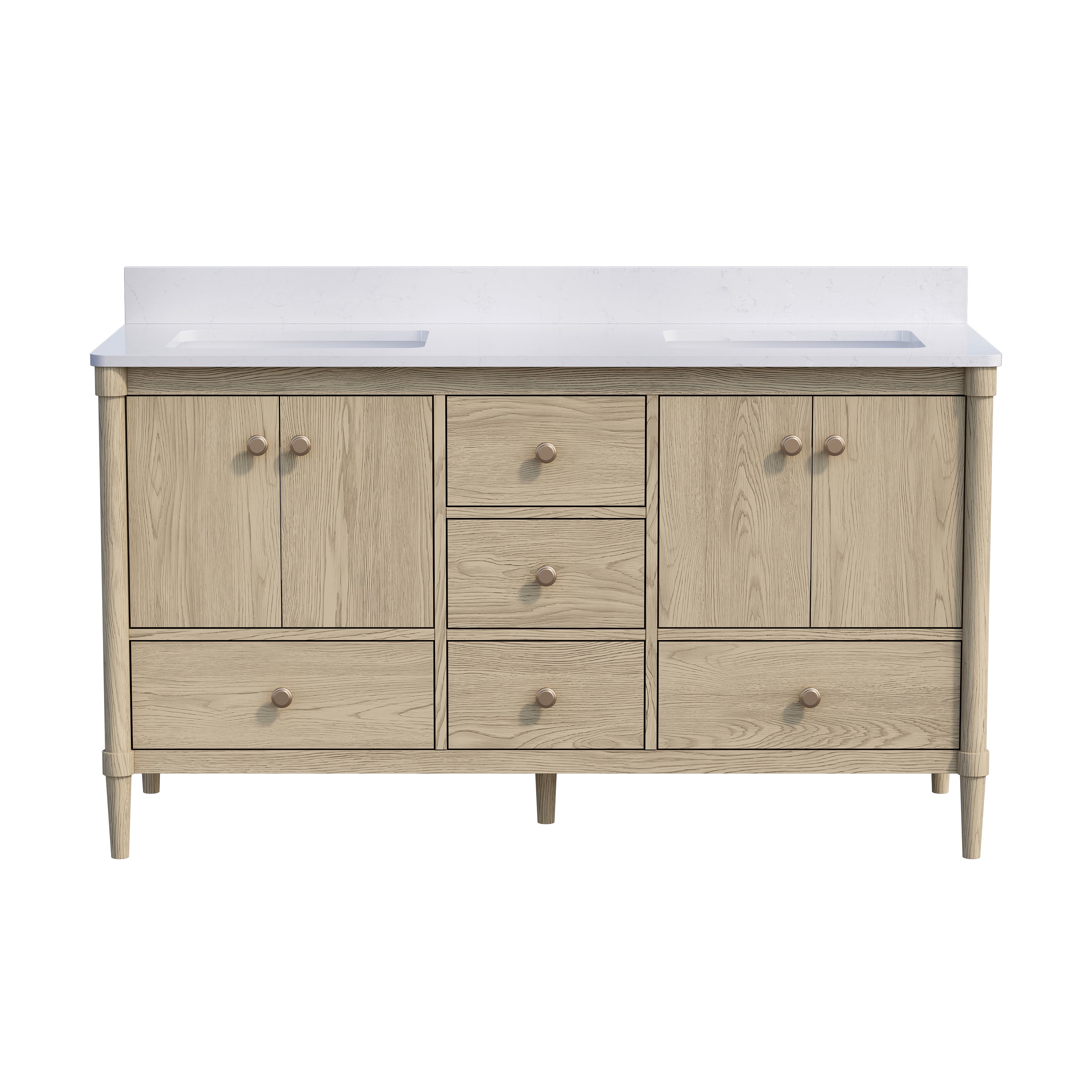
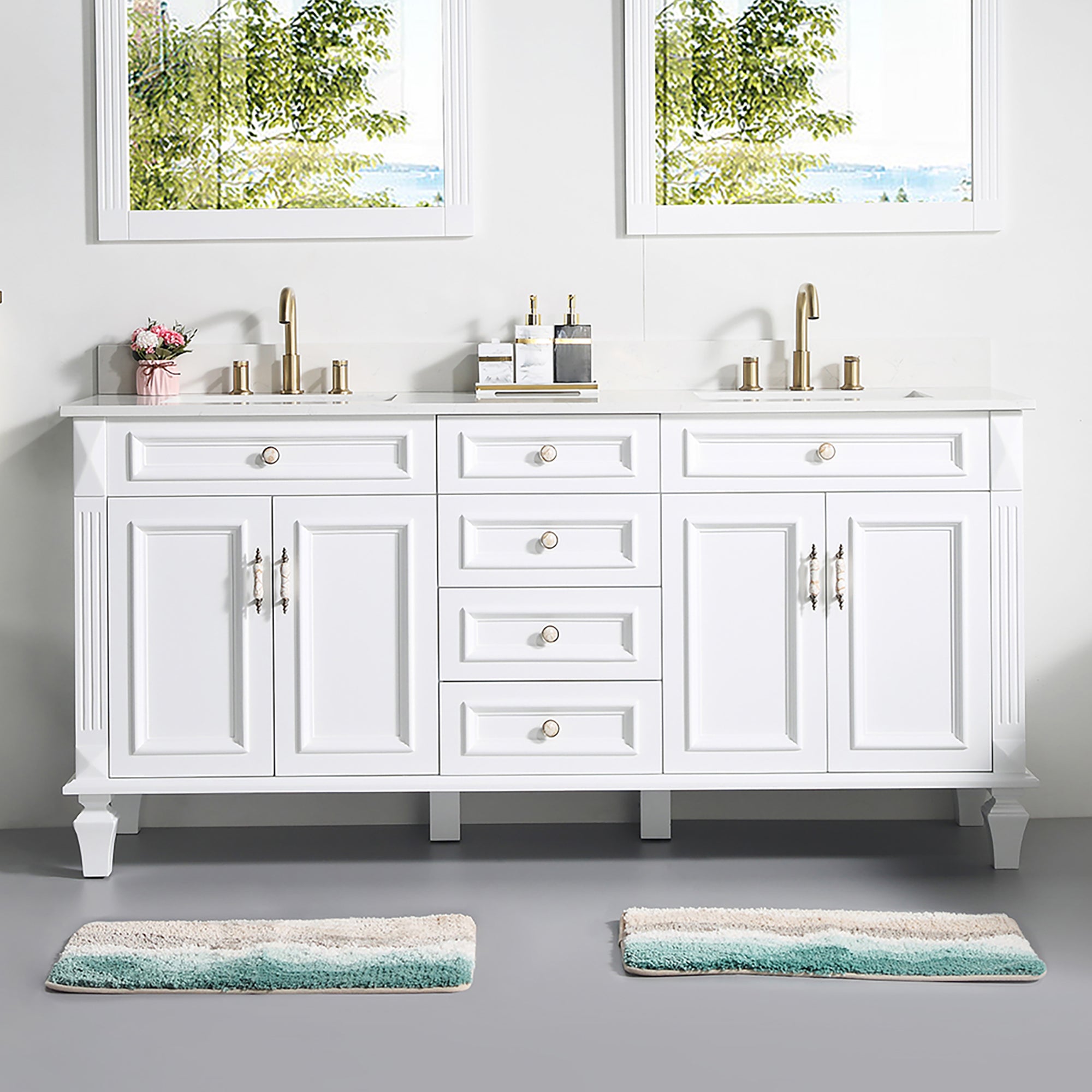
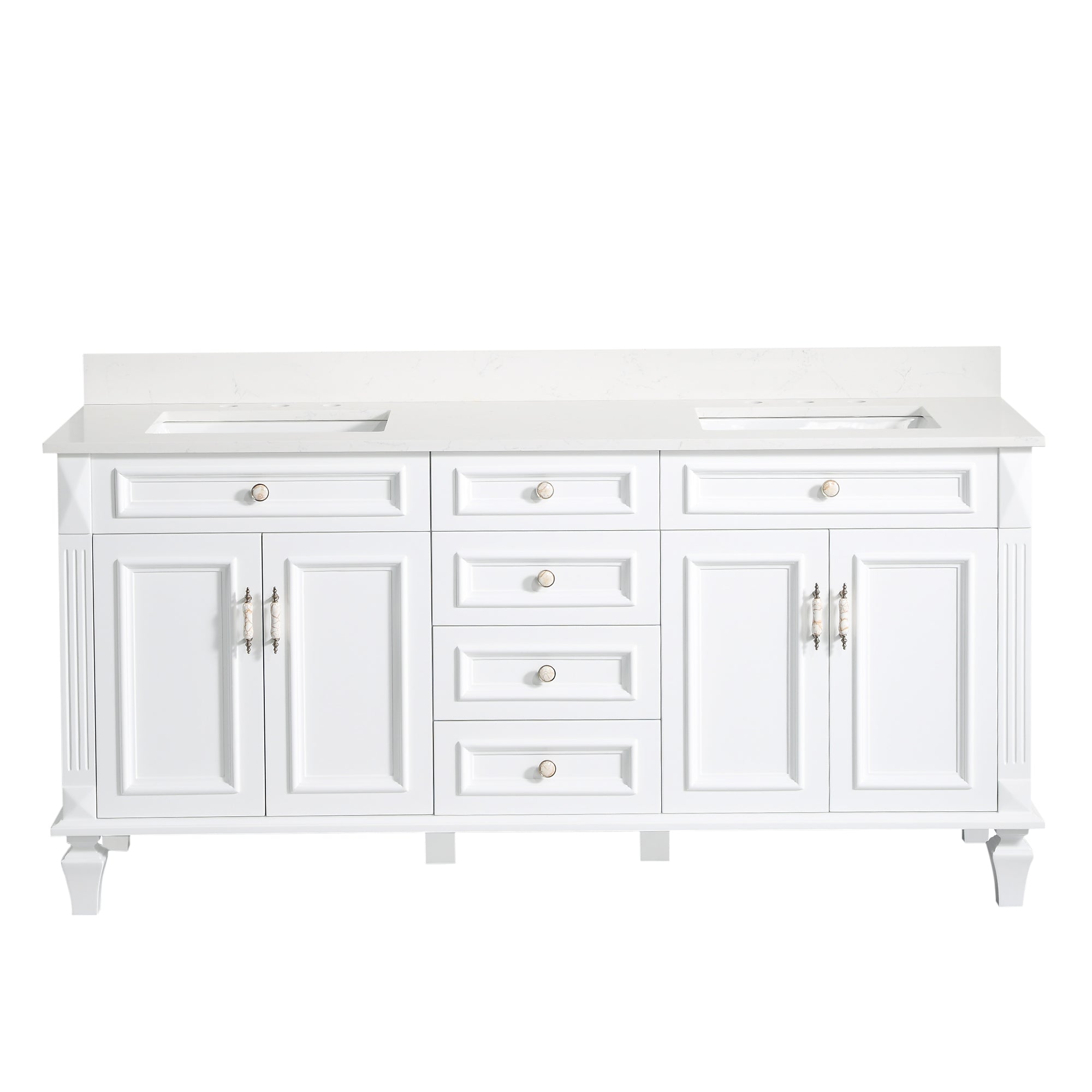
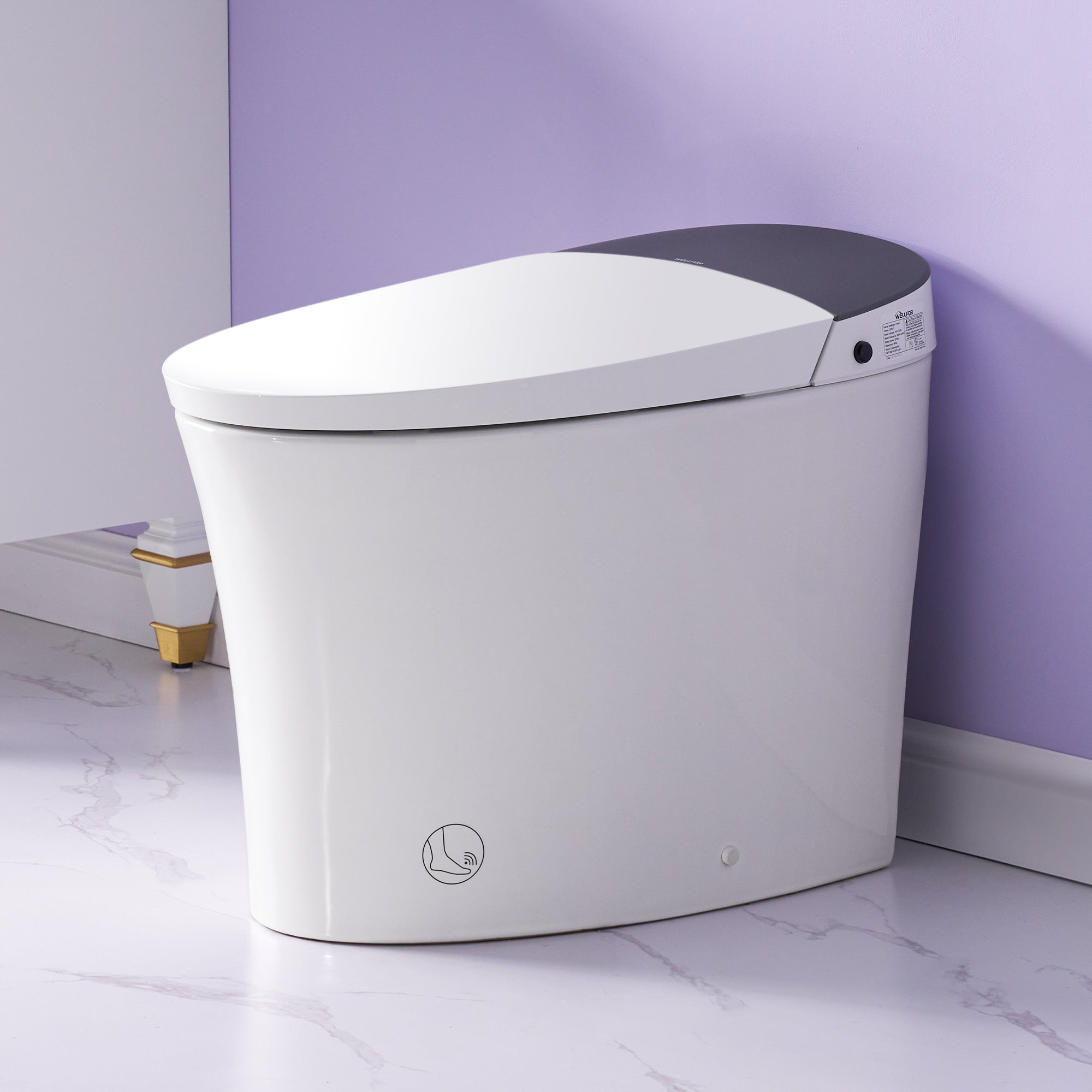
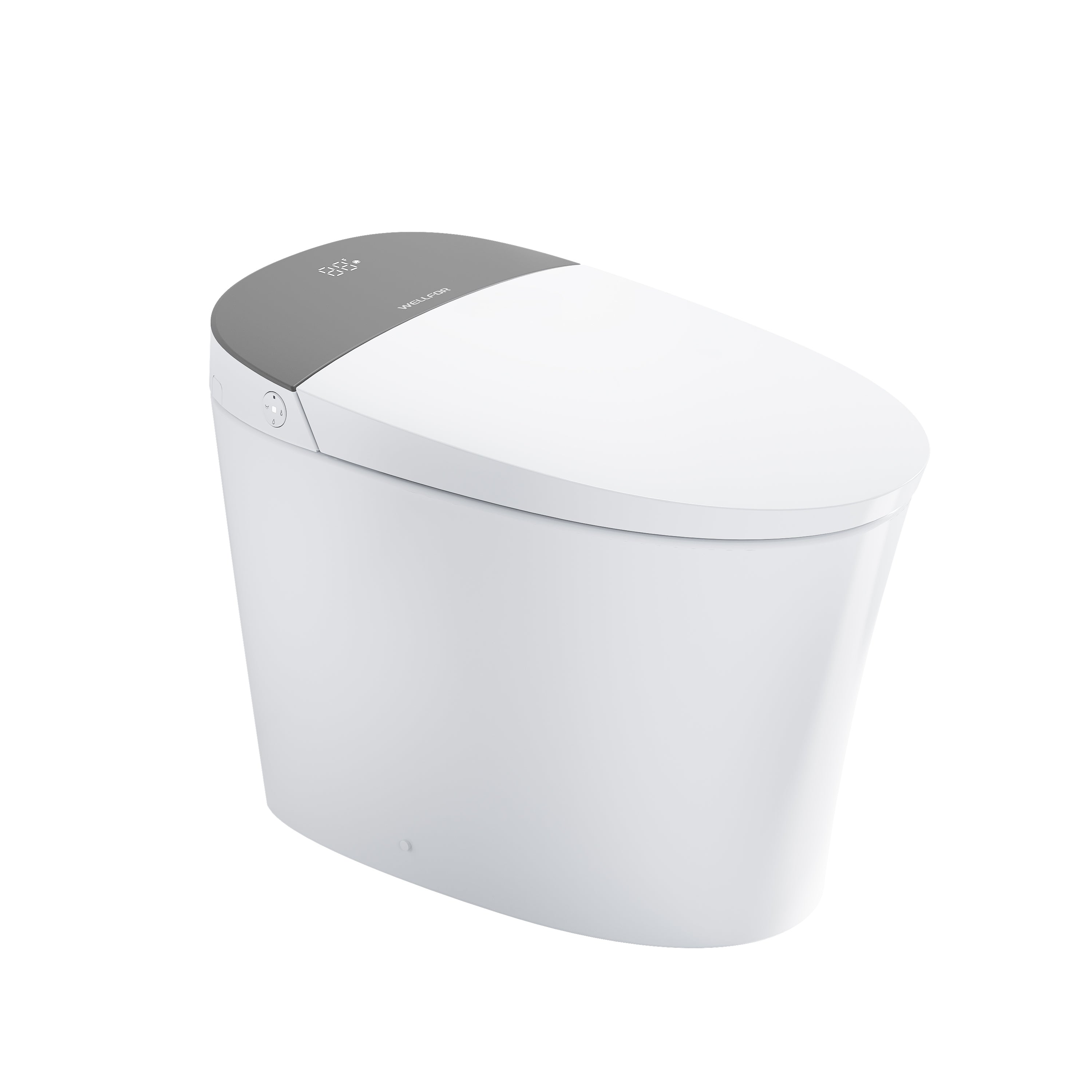
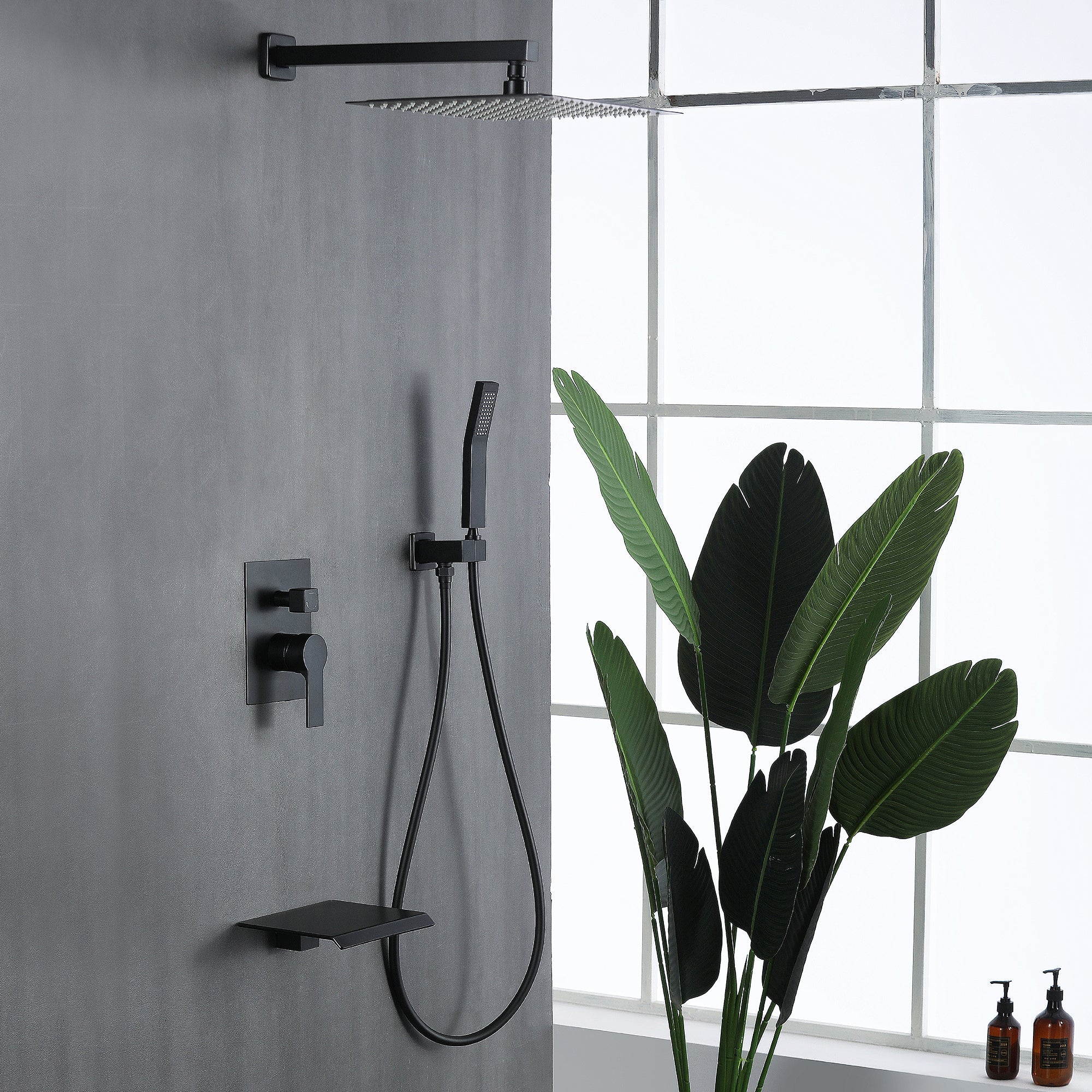
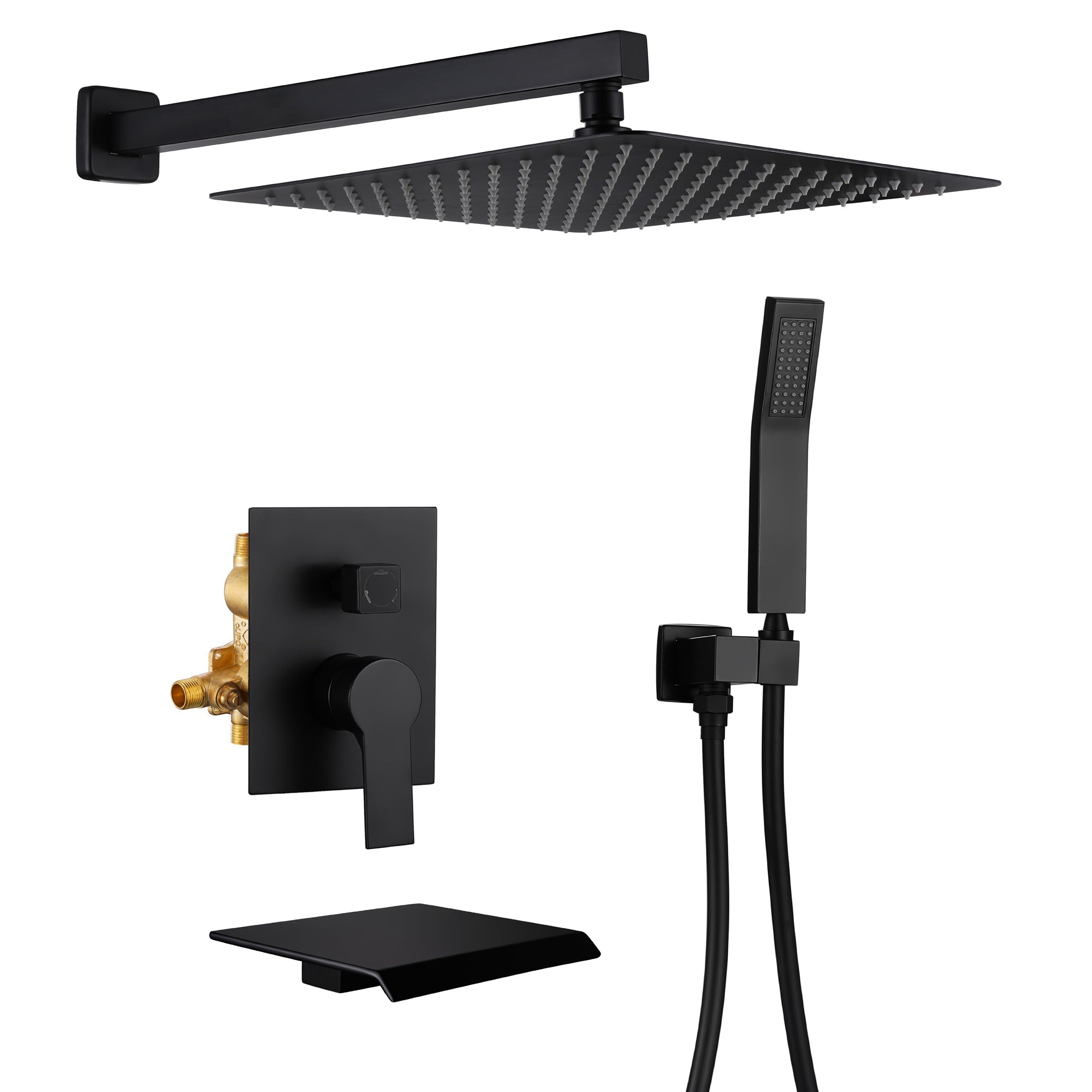
Leave a comment
This site is protected by hCaptcha and the hCaptcha Privacy Policy and Terms of Service apply.